This article provides insights into navigating the legal landscape in Madison, Wisconsin, including common legal cases and practical tips for finding qualified attorneys.
Understanding Common Legal Cases in Madison
Familiarizing yourself with prevalent legal cases in Madison can help you identify the right attorney for your needs, ensuring you receive the best representation possible.
Personal Injury Cases: Seeking Justice
Personal injury cases involve injuries caused by negligence, and knowing how to find a qualified attorney can significantly impact the outcome of your claim.
- Identifying Qualified Personal Injury Attorneys: Look for attorneys specializing in personal injury law with a proven track record of successful settlements and verdicts in Madison.
- Experience and Credentials: Check for relevant experience, including years in practice and any certifications from reputable legal organizations.
- Client Reviews and Testimonials: Research online reviews and testimonials to gauge past client satisfaction and the attorney’s reputation in the community.
Common Red Flags in Personal Injury Attorneys
Be wary of attorneys who guarantee specific outcomes or do not provide clear communication about fees and processes.
Medical Malpractice: Navigating Complex Cases
Medical malpractice cases require specialized knowledge, making it crucial to find attorneys with experience in healthcare law.
- Specialization in Medical Malpractice: Seek attorneys who focus on medical malpractice and have a history of handling similar cases in Madison.
- Consultation and Case Evaluation: A thorough consultation can help you understand the attorney’s approach and whether they believe your case has merit.
Breach of Contract: Protecting Your Interests
Breach of contract cases can arise in various contexts, and finding a skilled attorney can help enforce your rights.
- Finding Contract Law Experts: Look for attorneys with experience in contract law, particularly those who have successfully represented clients in similar disputes.
- Negotiation Skills: Strong negotiation skills are essential in breach of contract cases, so ensure your attorney has a reputation for effective negotiation.
Property Disputes: Resolving Conflicts
Property disputes can be complex, requiring knowledgeable attorneys who understand real estate law and local regulations.
- Real Estate Law Specialization: Seek attorneys specializing in real estate law with a strong understanding of property disputes in Madison.
- Litigation vs. Mediation: Discuss with potential attorneys whether they prefer litigation or mediation for resolving property disputes, as this can affect your case strategy.
Landlord-Tenant Disputes: Know Your Rights
Landlord-tenant disputes are common, and understanding your rights can help you find the right legal representation.
- Understanding Local Laws: Choose attorneys familiar with Wisconsin landlord-tenant laws to ensure you receive accurate legal advice.
- Experience with Eviction Cases: If facing eviction, find attorneys with experience in handling eviction cases to protect your rights effectively.
Defamation Cases: Protecting Your Reputation
Defamation cases can be sensitive and complex, necessitating skilled attorneys who understand media law and reputation management.
- Identifying Defamation Law Experts: Seek attorneys with a strong background in defamation law, particularly those with experience in handling high-profile cases.
- Evaluating Evidence and Claims: A good attorney will evaluate the strength of your claims and the evidence available to support your case.
Employment Disputes: Navigating Workplace Issues
Employment disputes can arise from various issues, including discrimination and wrongful termination; finding the right attorney is crucial.
- Specialization in Employment Law: Look for attorneys who specialize in employment law and have a strong track record in similar cases.
- Understanding Employee Rights: Ensure your attorney is well-versed in employee rights and can effectively advocate on your behalf.
Product Liability: Holding Manufacturers Accountable
Product liability cases involve injuries caused by defective products, necessitating attorneys with specific expertise in this area.
- Experience with Product Liability Cases: Choose attorneys who have successfully represented clients in product liability claims to ensure effective representation.
- Knowledge of Consumer Protection Laws: An understanding of consumer protection laws is crucial for navigating product liability cases, so look for attorneys with this expertise.
Wrongful Death: Seeking Justice for Loved Ones
Wrongful death cases are emotionally charged and complex; finding compassionate and experienced attorneys is essential.
- Compassionate Representation: Seek attorneys who demonstrate compassion and understanding, as they will guide you through this difficult time.
- Experience in Wrongful Death Litigation: Look for attorneys with a strong track record in wrongful death litigation to ensure effective advocacy for your case.
Class Action Lawsuits: Joining Forces
Class action lawsuits allow multiple plaintiffs to seek justice together, requiring attorneys skilled in mass tort litigation.
- Expertise in Class Action Cases: Choose attorneys experienced in class action lawsuits, particularly those with successful outcomes in similar cases.
- Understanding the Class Action Process: A knowledgeable attorney will guide you through the class action process, ensuring you understand your rights and responsibilities.
Criminal Defense: Protecting Your Rights
Criminal defense cases can have serious consequences, making it crucial to find attorneys with a strong background in criminal law.
- Experience in Criminal Defense: Seek attorneys with extensive experience in defending clients against criminal charges, particularly those similar to your case.
- Understanding Legal Strategies: A competent attorney will outline potential defense strategies based on the specifics of your case.
Family Law: Navigating Personal Matters
Family law encompasses a range of issues, including divorce and child custody, requiring specialized knowledge and sensitivity.
- Specialization in Family Law: Look for attorneys who specialize in family law and have a strong understanding of Wisconsin family regulations.
- Compassionate Approach: Choose attorneys who demonstrate empathy and understanding, as family law matters can be emotionally challenging.
Bankruptcy: Finding Financial Relief
Bankruptcy cases require knowledgeable attorneys who can guide you through the process and help you achieve financial relief.
- Understanding Bankruptcy Laws: Seek attorneys well-versed in bankruptcy laws and who can provide clear guidance on your options.
- Experience with Different Bankruptcy Types: Choose attorneys with experience in various bankruptcy types, such as Chapter 7 and Chapter 13, to find the best fit for your situation.

Understanding Common Legal Cases in Madison
When navigating the intricate legal landscape in Madison, understanding the most common legal cases can be invaluable. This knowledge not only equips you with the necessary insights but also aids in selecting the most appropriate attorney for your specific needs. Familiarizing yourself with prevalent legal scenarios ensures that you receive the best representation possible, tailored to the nuances of your case.
In Madison, residents frequently encounter a variety of legal issues. These issues range from personal injury and medical malpractice to property disputes and employment-related cases. Each type of case has its own set of complexities and requires specialized legal expertise. By becoming acquainted with these common legal cases, you can make informed decisions when seeking legal counsel.
Personal Injury Cases: Seeking Justice
Personal injury cases arise when an individual suffers harm due to the negligence of another party. In Madison, these cases often involve vehicular accidents, slip and falls, or workplace injuries. When looking for a personal injury attorney, consider their track record of successful settlements. A qualified attorney will thoroughly evaluate your case and guide you through the legal process, ensuring that you receive fair compensation for your injuries.
Medical Malpractice: Navigating Complex Cases
Medical malpractice cases are particularly intricate, requiring attorneys who specialize in healthcare law. These cases often involve negligence by healthcare professionals, leading to serious patient harm. When searching for a medical malpractice attorney in Madison, seek those with a proven history of handling similar cases and a deep understanding of medical regulations. A thorough consultation can help you gauge their expertise and approach to your case.
Breach of Contract: Protecting Your Interests
Breach of contract cases can occur in various contexts, including business agreements and service contracts. In Madison, it’s crucial to find an attorney experienced in contract law who can effectively advocate for your rights. Look for attorneys with strong negotiation skills, as they will be essential in resolving disputes amicably or through litigation.
Property Disputes: Resolving Conflicts
Property disputes often arise from disagreements over real estate transactions, boundary issues, or landlord-tenant conflicts. To ensure effective representation, seek attorneys who specialize in real estate law and have a thorough understanding of local regulations. Discussing whether they prefer litigation or mediation can also help you align on a strategy that suits your case.
Landlord-Tenant Disputes: Know Your Rights
In Madison, landlord-tenant disputes are common, often revolving around issues such as eviction or lease violations. Understanding your rights is vital, and choosing an attorney who is well-versed in Wisconsin landlord-tenant laws can provide you with accurate legal advice. If facing eviction, prioritize attorneys with extensive experience in handling such cases to ensure your rights are protected.
Defamation Cases: Protecting Your Reputation
Defamation cases, including libel and slander, can severely impact an individual’s reputation. These cases require attorneys with a robust understanding of media law and experience in handling sensitive matters. Seek legal counsel who can evaluate the strength of your claims and help you gather the necessary evidence to support your case.
Employment Disputes: Navigating Workplace Issues
Employment disputes often stem from issues like wrongful termination or discrimination. In Madison, finding an attorney who specializes in employment law is crucial. Look for those with a strong track record in similar cases and who are knowledgeable about employee rights. This expertise will ensure that you have the best possible representation in your workplace dispute.
Product Liability: Holding Manufacturers Accountable
Product liability cases involve injuries caused by defective products, necessitating attorneys with specific expertise in consumer protection laws. When searching for a product liability attorney, prioritize those with a history of successfully representing clients in similar claims. Their knowledge of consumer protection laws will be essential in navigating these complex cases.
Wrongful Death: Seeking Justice for Loved Ones
Wrongful death cases are emotionally charged and require compassionate attorneys who understand the sensitivity involved. In Madison, look for attorneys with a strong track record in wrongful death litigation, as they will be equipped to advocate effectively for your case during this difficult time.
Class Action Lawsuits: Joining Forces
Class action lawsuits allow multiple plaintiffs to seek justice collectively, requiring attorneys skilled in mass tort litigation. When considering a class action attorney, choose those with experience in similar cases and a history of successful outcomes. This expertise will help guide you through the complexities of the class action process.
Criminal Defense: Protecting Your Rights
Criminal defense cases can have serious consequences, making it crucial to find attorneys with a robust background in criminal law. Seek attorneys with extensive experience in defending clients against charges similar to yours. A competent attorney will outline potential defense strategies based on the specifics of your case, ensuring you are well-prepared.
Family Law: Navigating Personal Matters
Family law encompasses issues such as divorce, child custody, and adoption, requiring specialized knowledge and sensitivity. In Madison, look for attorneys who specialize in family law and demonstrate empathy in their approach. Their understanding of Wisconsin family regulations will be crucial in navigating these personal matters.
Bankruptcy: Finding Financial Relief
Bankruptcy cases require knowledgeable attorneys who can guide you through the process and help you achieve financial relief. Seek attorneys well-versed in bankruptcy laws and who can provide clear guidance on your options, ensuring you make informed decisions for your financial future.

Personal Injury Cases: Seeking Justice
Personal injury cases are a significant area of law that deals with injuries sustained due to the negligence or wrongful actions of others. These cases can arise from various incidents, including car accidents, slip and falls, medical malpractice, and more. Understanding how to navigate this complex legal landscape is crucial for anyone seeking justice and compensation for their injuries.
Identifying the Right Personal Injury Attorney
Finding a qualified personal injury attorney is essential for the success of your claim. Start by seeking attorneys who specialize in personal injury law, as they will possess the necessary knowledge and experience to handle your case effectively. Look for attorneys who have a proven track record of successful settlements and verdicts in personal injury cases. This information can often be found on their websites or through legal directories.
Experience Matters
When evaluating potential attorneys, consider their experience in handling personal injury cases similar to yours. An attorney with several years of practice in this field will have a deeper understanding of the nuances involved and can provide more effective representation. Additionally, check for any certifications or awards from reputable legal organizations, as these can signify a commitment to excellence in the field.
Client Reviews and Testimonials
Researching online reviews and testimonials can provide valuable insights into an attorney’s reputation and client satisfaction. Websites like Avvo, Martindale-Hubbell, and Google Reviews can offer perspectives from past clients, helping you gauge how effectively an attorney communicates and advocates for their clients. Pay attention to patterns in feedback—consistent praise or criticism can be telling.
Initial Consultations
Many personal injury attorneys offer free initial consultations. Use this opportunity to ask questions about their experience, approach to your case, and fee structure. This meeting will help you assess their communication style and whether you feel comfortable working with them. A good attorney should be able to explain the legal process clearly and set realistic expectations for your case.
Understanding Fee Structures
Personal injury attorneys typically work on a contingency fee basis, meaning they only get paid if you win your case. However, it’s essential to clarify the percentage they will take from your settlement and any additional costs you may incur during the legal process. Ensure you have a clear understanding of the financial aspects before proceeding.
Red Flags to Avoid
Be cautious of attorneys who make unrealistic promises or guarantees regarding the outcome of your case. No attorney can predict the exact results, and those who claim otherwise may be more interested in securing your business than in providing honest representation. Additionally, if an attorney is unresponsive or fails to communicate clearly during your initial meetings, consider this a warning sign.
Networking and Referrals
Another effective way to find a qualified personal injury attorney is through referrals from friends, family, or colleagues who have had positive experiences with legal professionals. Networking within your community can lead you to trusted attorneys who have a good standing and reputation.
Utilizing Online Resources
In today’s digital age, numerous online platforms can help you find reputable personal injury attorneys. Websites like FindLaw, Justia, and the American Bar Association’s lawyer directory provide extensive listings and resources for individuals in need of legal representation. These platforms often include filters for location, practice area, and client reviews, making it easier to find the right attorney for your needs.
Conclusion
In summary, navigating personal injury cases requires careful consideration and research to find the best attorney for your specific situation. By focusing on experience, client satisfaction, and transparent communication, you can increase your chances of receiving the justice and compensation you deserve.
Identifying Qualified Personal Injury Attorneys
When searching for a qualified attorney in personal injury law, it is crucial to consider several factors that will ensure you receive the best possible representation. A personal injury case can be a daunting experience, and having the right legal support can significantly influence the outcome of your claim.
- Specialization in Personal Injury Law: Look for attorneys who focus specifically on personal injury cases. This specialization indicates that they are well-versed in the nuances of personal injury law and have experience handling similar cases.
- Proven Track Record: Seek attorneys with a strong history of successful settlements and verdicts. This can be assessed through their past case results, which should be readily available on their website or through legal directories.
- Client Testimonials: Reading reviews and testimonials from former clients can provide insight into the attorney’s effectiveness, communication style, and overall client satisfaction. Websites like Avvo and Martindale-Hubbell can be helpful resources for this purpose.
- Initial Consultation: Most personal injury attorneys offer free consultations. Use this opportunity to discuss your case and evaluate the attorney’s approach. Pay attention to how well they listen and whether they provide clear answers to your questions.
- Fees and Payment Structure: Understand the attorney’s fee structure. Many personal injury lawyers work on a contingency basis, meaning they only get paid if you win your case. Ensure you clarify any potential costs upfront to avoid surprises later.
- Experience in Negotiation: Personal injury cases often involve negotiations with insurance companies. An attorney with strong negotiation skills can significantly enhance your chances of securing a favorable settlement.
- Local Knowledge: Attorneys familiar with the local laws and courts in Madison can offer insights that may benefit your case. They will understand the tendencies of local judges and juries, which can be invaluable during litigation.
By focusing on these key aspects, you can better identify qualified personal injury attorneys who will advocate effectively on your behalf. Remember, the right attorney can make a significant difference in the outcome of your personal injury claim.
Experience and Credentials
When searching for a qualified attorney, it is crucial to consider their experience and credentials. This aspect is not only about the number of years they have practiced law but also about their specific qualifications and the recognition they have received in their field. Here, we will delve into why these factors matter and how to evaluate them effectively.
First and foremost, the years in practice can be a significant indicator of an attorney’s expertise. Generally, attorneys with more years of experience will have encountered a wider range of cases and developed a deeper understanding of the law. This experience can be particularly valuable in complex legal matters such as medical malpractice or criminal defense, where the nuances of the law can significantly impact the outcome of a case.
In addition to years of practice, it is essential to check for certifications from reputable legal organizations. These certifications often indicate that the attorney has specialized knowledge and has met specific criteria set forth by professional bodies. For example, an attorney who is board-certified in a particular area of law, such as family law or personal injury, has undergone rigorous testing and peer review, demonstrating a high level of competence in that field.
Furthermore, consider the attorney’s involvement in professional associations. Membership in organizations such as the American Bar Association (ABA) or state bar associations can be a good sign of an attorney’s commitment to staying updated on legal developments and continuing education. Active participation in these associations may also provide them with networking opportunities that can benefit your case.
When evaluating an attorney’s experience, also look for their track record in handling cases similar to yours. For instance, if you are dealing with a defamation case, seek out attorneys who have successfully represented clients in similar situations. This kind of specialized experience can significantly enhance the likelihood of a favorable outcome.
Another important aspect is the attorney’s ability to communicate effectively. A lawyer’s experience should also be reflected in how they interact with clients. During initial consultations, pay attention to how well they explain legal concepts and how responsive they are to your questions. An experienced attorney should be able to break down complex legal jargon into understandable terms, making you feel more confident in their abilities.
Finally, be cautious of red flags. If an attorney makes unrealistic promises or guarantees about the outcome of your case, it may indicate a lack of integrity or understanding of the law. Additionally, if they are unwilling to provide references or examples of past successes, it could be a sign to look elsewhere.
In summary, when searching for legal representation, thoroughly vet potential attorneys based on their experience and credentials. Look for years of practice, relevant certifications, involvement in professional associations, and a proven track record in cases similar to yours. By doing so, you can ensure that you are choosing a qualified and trustworthy legal professional to represent your interests.
Client Reviews and Testimonials
When seeking legal representation, serve as invaluable resources. They provide insights into the experiences of past clients and can help potential clients gauge an attorney’s reputation within the community. Here’s a comprehensive guide on how to effectively research these reviews and what to look for in the feedback.
First and foremost, utilize online platforms that aggregate reviews of legal professionals. Websites such as Avvo, Yelp, and Google Maps allow users to leave detailed feedback about their experiences with attorneys. Pay attention to the overall rating, but also delve into the written reviews to understand the context behind the ratings.
- Look for Consistency: A few glowing reviews among a sea of negative feedback may raise red flags. Consistency in positive reviews often indicates a reliable attorney.
- Assess the Specifics: Reviews that detail specific experiences, such as communication, responsiveness, and case outcomes, are more valuable than generic praise.
- Identify Patterns: If multiple clients mention similar issues, such as poor communication or lack of professionalism, consider these patterns seriously.
In addition to general review sites, consider checking the attorney’s website for testimonials. While these are often curated and may not provide a complete picture, they can still offer insights into the attorney’s strengths and areas of expertise. Look for testimonials that highlight specific cases relevant to your needs.
Social media platforms can also provide a glimpse into an attorney’s reputation. Many attorneys maintain active profiles on platforms like LinkedIn and Facebook, where clients may leave reviews or comments. Engaging with the attorney’s posts can also help you gauge their expertise and approachability.
Another useful method is to ask for referrals from friends, family, or colleagues who have had positive experiences with attorneys. Personal recommendations often carry more weight than online reviews, as they come from trusted sources.
When evaluating reviews, be cautious of fake testimonials. Some attorneys may post misleading reviews or hire services to generate positive feedback. Look for signs of authenticity, such as detailed accounts of experiences, and be wary of overly generic or overly enthusiastic reviews.
Lastly, consider reaching out to the attorney for an initial consultation. This meeting can provide further insights into their professionalism and approach. During the consultation, ask about their experience with cases similar to yours and how they have handled past client relationships. A good attorney will be open to discussing their track record and addressing any concerns you may have.
In summary, thorough research of client reviews and testimonials is essential when selecting an attorney. By utilizing various platforms, assessing the specificity and consistency of reviews, and seeking personal referrals, you can make a more informed decision in your search for legal representation.
Common Red Flags in Personal Injury Attorneys
When seeking legal representation for personal injury cases, it is crucial to be vigilant about potential warning signs that may indicate a less-than-reputable attorney. Understanding these red flags can help you make informed decisions and protect your interests.
- Guarantees of Specific Outcomes: Be cautious of attorneys who promise specific results. The legal system is inherently unpredictable, and no attorney can guarantee a favorable outcome. A reputable lawyer will provide a realistic assessment of your case based on their experience and the specifics of your situation.
- Lack of Clear Communication: Effective communication is vital in any attorney-client relationship. If an attorney fails to explain their fees, processes, or the status of your case in a clear and timely manner, it could be a sign of disorganization or a lack of professionalism.
- High Pressure Tactics: If an attorney pressures you to sign a contract or make quick decisions, it is advisable to reconsider. A trustworthy attorney will give you the time you need to understand your options without rushing you into a decision.
- Negative Reviews and Poor Reputation: Research online reviews and testimonials from previous clients. If you find a pattern of negative feedback, especially regarding communication, professionalism, or case handling, it may be wise to look elsewhere.
- Unclear Fee Structures: Attorneys should be transparent about their fee arrangements, whether they operate on a contingency basis or charge hourly. If you encounter vague explanations or hidden fees, it might indicate that the attorney is not operating ethically.
- Limited Experience in Personal Injury Law: Personal injury law is complex and requires specialized knowledge. Ensure that the attorney you are considering has substantial experience specifically in personal injury cases, as this expertise can significantly impact your case’s outcome.
- Reluctance to Provide References: A reputable attorney should have no problem providing references from past clients or colleagues. If an attorney is hesitant to share this information, it could indicate a lack of confidence in their services.
By being aware of these red flags, you can better navigate the process of selecting a personal injury attorney who will advocate effectively on your behalf. Always trust your instincts; if something feels off, it is essential to continue your search for legal representation.
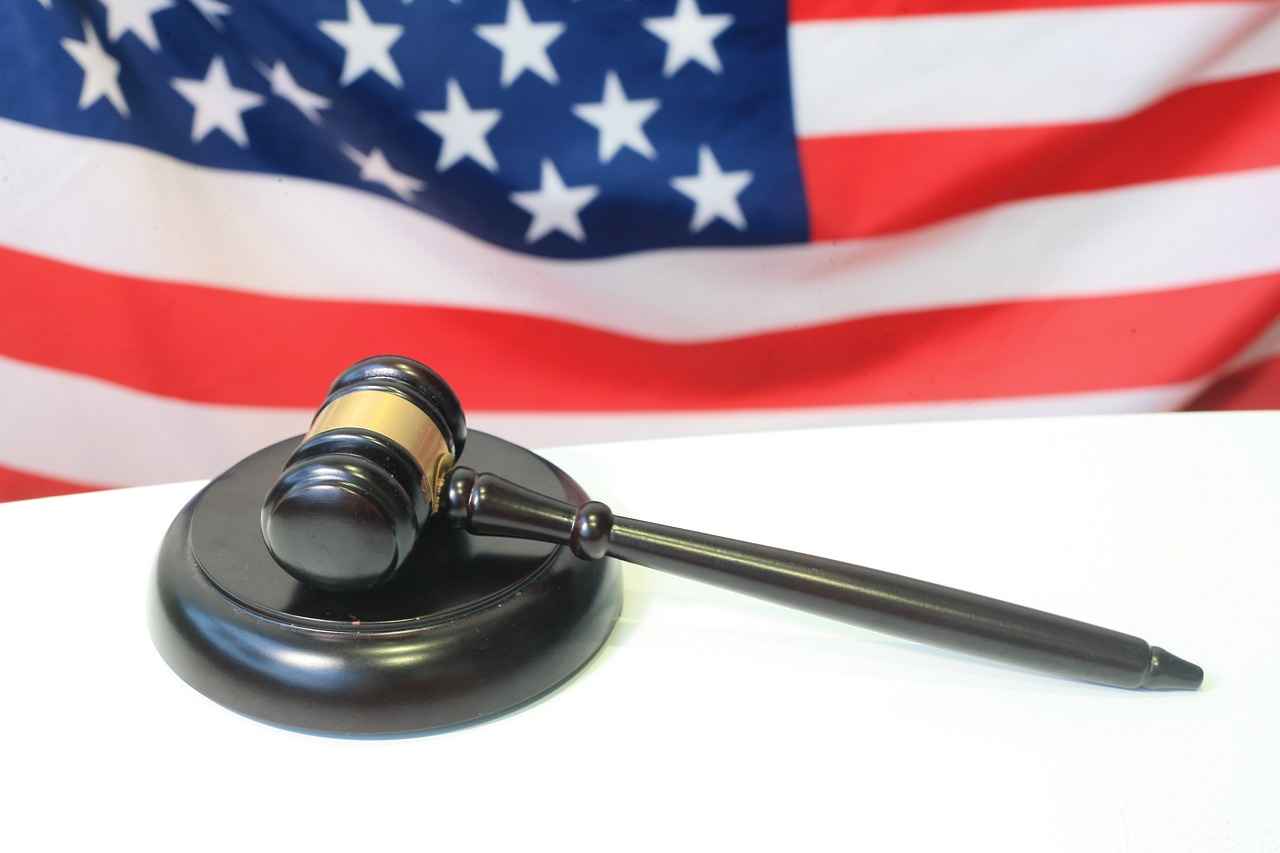
Medical Malpractice: Navigating Complex Cases
Medical malpractice cases are among the most intricate and sensitive legal matters. They require not only a profound understanding of medical practices but also the ability to navigate the complexities of healthcare law. When pursuing a medical malpractice claim, it is absolutely essential to find attorneys who possess specialized knowledge and experience in this field.
Why Specialized Knowledge is Crucial
Medical malpractice involves situations where healthcare professionals fail to provide the standard of care expected, resulting in harm to patients. This can include misdiagnosis, surgical errors, medication mistakes, and more. Because these cases often hinge on technical medical details, attorneys must be well-versed in healthcare regulations, medical terminology, and the standards of care within various medical specialties. Without this expertise, it can be challenging to build a strong case.
Finding the Right Medical Malpractice Attorney
- Look for Specialization: Seek attorneys who focus specifically on medical malpractice. These professionals typically have a deeper understanding of the nuances involved in such cases and can provide more effective representation.
- Evaluate Experience: An attorney’s track record is a critical factor. Look for those who have successfully handled cases similar to yours, ideally with favorable outcomes.
- Consultation and Case Evaluation: Schedule consultations to discuss your case. During this meeting, assess the attorney’s approach and whether they believe your case has merit. A good attorney will provide a candid evaluation and outline potential strategies.
- Check Credentials: Verify the attorney’s educational background, certifications, and any professional affiliations with legal or medical organizations. This information can provide insight into their qualifications.
- Client Reviews: Research online reviews and testimonials. Feedback from previous clients can give you a sense of the attorney’s reputation, communication style, and effectiveness.
Red Flags to Avoid
While searching for a medical malpractice attorney, be cautious of certain warning signs. For example, if an attorney guarantees specific outcomes or pressures you to sign a contract quickly, consider this a red flag. Additionally, be wary of those who lack transparency regarding fees or do not provide clear information about the litigation process. Communication is vital in legal matters, and you should feel comfortable discussing your case openly with your attorney.
Utilizing Legal Platforms and Resources
In major metropolitan areas like New York City, Los Angeles, and Chicago, there are numerous resources available to help you find qualified medical malpractice attorneys. Websites like Avvo and Nolo offer directories of attorneys along with ratings and reviews. Additionally, local bar associations often have referral services that can connect you with specialized lawyers in your area.
In summary, navigating medical malpractice cases requires an attorney with specialized knowledge and experience in healthcare law. By taking the time to research and evaluate potential attorneys, you can find a qualified professional who will advocate effectively for your rights.
Specialization in Medical Malpractice
When dealing with the complexities of medical malpractice, it is essential to seek out attorneys who specialize in this specific area of law. Medical malpractice cases are intricate and often involve nuanced legal and medical issues. Therefore, finding an attorney with a robust background in medical malpractice is crucial for the success of your case.
In Madison, Wisconsin, and similar metropolitan areas, you should prioritize attorneys who have a proven track record in handling medical malpractice cases. This specialization means they are familiar with the standards of care required in the medical field and understand how to effectively argue against potential defenses that may be raised by healthcare providers or institutions.
Experience in Similar Cases
When searching for a qualified attorney, look for those who have a history of managing cases similar to yours. For example, if your case involves surgical errors, seek attorneys who have successfully represented clients in similar situations. Their experience can provide a significant advantage when navigating the complexities of your case.
Credentials and Professional Associations
Check for relevant credentials that demonstrate the attorney’s expertise in medical malpractice. Membership in professional organizations such as the American Association for Justice (AAJ) or the Wisconsin Association for Justice (WAJ) can indicate a commitment to staying updated on legal developments in this field. Additionally, certifications in medical malpractice law can further validate their qualifications.
Initial Consultations
Most attorneys offer initial consultations, which can be an excellent opportunity to gauge their expertise. During this meeting, ask about their experience with cases similar to yours, their approach to litigation, and their success rates. This interaction will also help you assess their communication style and whether you feel comfortable working with them.
Client Reviews and Testimonials
Researching online reviews and testimonials can provide insights into an attorney’s reputation and client satisfaction. Websites like Avvo or Martindale-Hubbell offer ratings and reviews from past clients, which can help you make an informed decision. Look for attorneys who consistently receive positive feedback regarding their professionalism, communication, and results.
Understanding Fee Structures
Medical malpractice cases can be costly, so it is crucial to understand the attorney’s fee structure. Many attorneys work on a contingency fee basis, meaning they only get paid if you win your case. Ensure you discuss this during your consultation to avoid any surprises later on. A transparent fee structure can be a good indicator of the attorney’s integrity and professionalism.
Red Flags to Avoid
- Attorneys who guarantee specific outcomes should be approached with caution, as no attorney can predict the outcome of a case with certainty.
- Be wary of those who rush the consultation process or do not take the time to answer your questions thoroughly.
- Watch out for attorneys who lack experience in medical malpractice or do not have a clear understanding of medical terms and procedures relevant to your case.
By focusing on these aspects, you can find a qualified attorney who specializes in medical malpractice in Madison or any other metropolitan area. Their expertise will significantly enhance your chances of receiving the compensation you deserve for your injuries.
Consultation and Case Evaluation
When considering legal representation, understanding the nuances of a thorough consultation is essential. This initial meeting serves as a crucial opportunity for both the client and the attorney to assess the potential for a successful partnership. During this consultation, clients can gain valuable insights into the attorney’s methodology and perspective on their case.
Understanding the Attorney’s Approach
Every attorney has a unique approach to handling cases, influenced by their experiences and legal philosophy. A comprehensive consultation allows clients to ask pertinent questions about the attorney’s strategy, including:
- How do you typically handle cases similar to mine?
- What is your success rate in these types of cases?
- What are the possible outcomes I can expect?
By discussing these topics, clients can better understand whether the attorney’s approach aligns with their expectations and needs.
Evaluating Case Merits
During the consultation, attorneys will often provide an initial evaluation of the case’s merits. This assessment can be pivotal for clients, as it helps them gauge the viability of their claims. Attorneys may consider various factors, such as:
- The strength of the evidence available
- Applicable laws and regulations
- Potential challenges and obstacles
Understanding the attorney’s perspective on these elements can empower clients to make informed decisions about whether to proceed with legal action.
Building Trust and Communication
A successful attorney-client relationship is built on trust and effective communication. The consultation is an excellent time for clients to assess how well the attorney listens and responds to their concerns. Key aspects to observe include:
- Does the attorney take the time to understand my situation?
- Are they clear in their explanations and advice?
- Do I feel comfortable discussing my case with them?
If clients feel heard and respected during the initial consultation, it can be a positive indicator of a fruitful partnership.
Discussing Fees and Payment Structures
Another critical aspect of the consultation involves discussing fees and payment structures. Clients should feel empowered to ask about:
- Hourly rates vs. contingency fees
- Any upfront costs or retainer fees
- How billing will be handled throughout the case
Being clear about financial expectations can prevent misunderstandings later on and ensure that clients are comfortable with the financial commitment involved in pursuing their case.
Identifying Red Flags
While most attorneys aim to provide honest and effective representation, some red flags can indicate potential issues. During the consultation, clients should be wary of:
- Guarantees of specific outcomes
- Lack of transparency regarding fees
- Poor communication or responsiveness
Recognizing these warning signs early can help clients avoid potential pitfalls in their search for legal representation.
Conclusion
A thorough consultation is an invaluable step in understanding an attorney’s approach and assessing the merits of your case. By asking the right questions, evaluating communication styles, and being aware of potential red flags, clients can make informed decisions about their legal representation. This proactive approach can significantly impact the outcome of their legal journey.
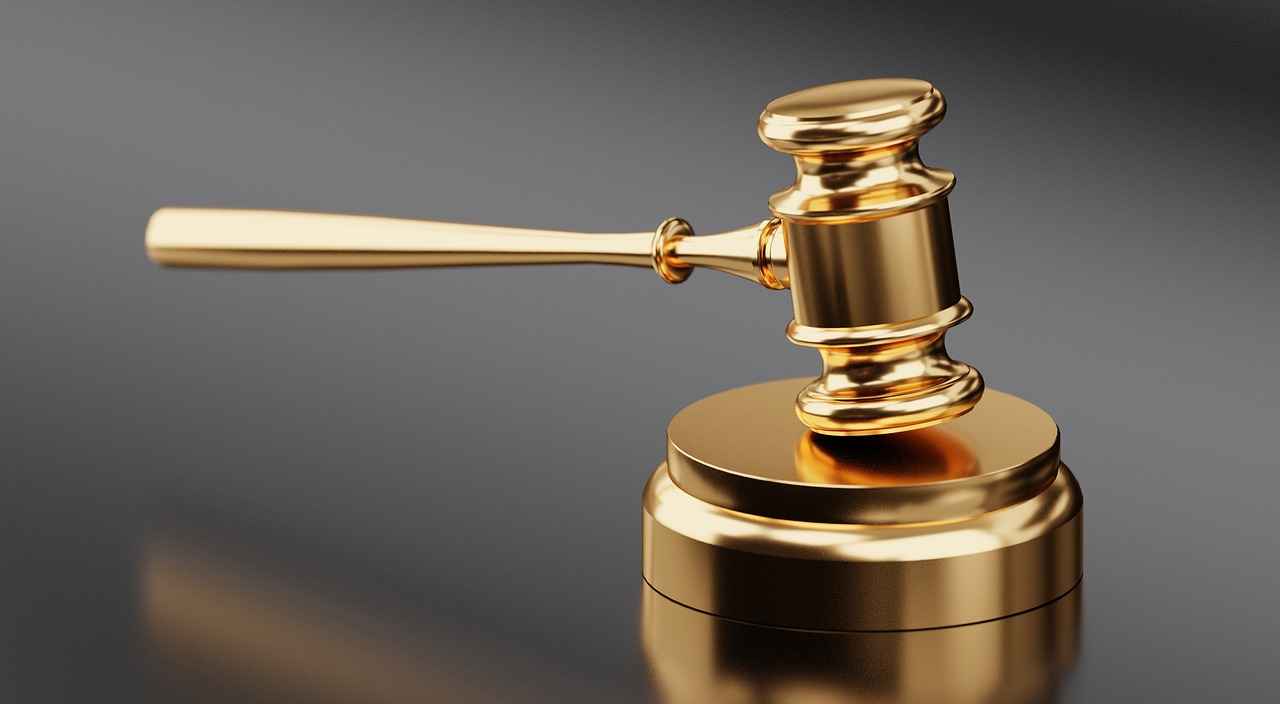
Breach of Contract: Protecting Your Interests
Breach of contract cases can occur in various contexts, from business agreements to personal arrangements. When a party fails to fulfill their obligations as outlined in a contract, it can lead to significant financial and emotional repercussions. To effectively navigate these situations, it is essential to find a skilled attorney who can help enforce your rights and protect your interests.
A breach of contract occurs when one party does not uphold their end of the agreement. This can manifest in several ways, including:
- Failure to perform: One party does not fulfill their obligations.
- Late performance: Obligations are met but not within the agreed timeframe.
- Defective performance: The work completed does not meet the standards outlined in the contract.
Understanding the specifics of your case is crucial, as different types of breaches may require different legal approaches.
To find an attorney with expertise in contract law, consider the following steps:
- Research local attorneys: Start by searching online directories or legal websites that list attorneys by specialty. Look for those who focus specifically on contract law.
- Check credentials: Ensure the attorney has relevant experience and a track record of success in handling breach of contract cases.
- Ask for referrals: Reach out to friends, family, or colleagues who may have dealt with similar legal issues for recommendations.
Strong negotiation skills are essential in breach of contract cases. Your attorney should have a reputation for effectively negotiating settlements. During your initial consultation, ask about their negotiation strategies and past successes in resolving similar disputes. A skilled negotiator can often achieve a favorable outcome without the need for lengthy litigation.
When selecting an attorney, it is vital to evaluate their experience in handling breach of contract cases. Inquire about:
- Years of practice: Look for attorneys with significant experience in contract law.
- Case outcomes: Ask about their success rates in similar cases and whether they have taken cases to trial.
- Client testimonials: Research online reviews and testimonials to gauge client satisfaction and the attorney’s reputation.
Legal fees can vary significantly among attorneys, so it is important to discuss costs upfront. Common fee structures include:
- Hourly rates: Many attorneys charge by the hour, so be sure to understand their rates and estimate the total cost.
- Contingency fees: In some cases, attorneys may work on a contingency basis, meaning they only get paid if you win your case.
- Flat fees: For straightforward cases, some attorneys may offer a flat fee arrangement.
Ensure that you receive a clear breakdown of all potential costs before signing any agreements.
While searching for a qualified attorney, be mindful of potential red flags that may indicate a lack of professionalism or expertise:
- Guarantees of success: Be cautious of attorneys who promise specific outcomes, as legal cases can be unpredictable.
- Poor communication: If an attorney is difficult to reach or does not respond promptly to inquiries, this may reflect their commitment to your case.
- Lack of transparency: Avoid attorneys who are not upfront about their fees or the legal process.
In summary, finding the right attorney for a breach of contract case is crucial for protecting your interests. By conducting thorough research, evaluating experience and skills, and being aware of potential red flags, you can secure competent legal representation that will help you navigate the complexities of your case.
Finding Contract Law Experts
When dealing with legal matters related to contracts, it is essential to have the right legal representation. Finding contract law experts can significantly influence the outcome of your case, whether you are facing a breach of contract dispute or need assistance drafting a legally binding agreement. Here are some practical tips to help you identify and select the most qualified attorneys specializing in contract law.
Start your search by seeking attorneys who specialize in contract law. This specialization is crucial because contract disputes often involve intricate legal principles that require a deep understanding of the law. Look for attorneys who have a proven track record of handling cases similar to yours. This experience can include:
- Successfully representing clients in breach of contract disputes
- Assisting businesses in drafting contracts that protect their interests
- Negotiating settlements for contract-related issues
When evaluating potential attorneys, consider their credentials. Look for lawyers who have:
- A law degree from an accredited institution
- Membership in relevant legal associations, such as the American Bar Association
- Certifications in contract law or related fields
These qualifications can indicate a lawyer’s commitment to their practice and their expertise in the field.
In today’s digital age, various online platforms can help you find qualified attorneys. Websites like Avvo, FindLaw, and Justia allow you to search for lawyers based on their specialization, location, and client reviews. Pay attention to:
- Client ratings and testimonials
- Case results highlighted on their profiles
- Any disciplinary actions or complaints filed against them
This information can provide valuable insights into an attorney’s reputation and effectiveness.
Most attorneys offer free initial consultations. Use this opportunity to interview potential lawyers and assess whether they are a good fit for your needs. During the consultation, consider asking the following questions:
- What is your experience with cases similar to mine?
- What strategies would you employ to address my situation?
- How do you charge for your services, and what are your payment terms?
These inquiries can help you gauge the attorney’s expertise and approach to your case.
Effective communication is vital in any legal matter. When meeting with potential attorneys, pay attention to how well they explain complex legal concepts in understandable terms. A good attorney should be able to:
- Clearly articulate their strategies for your case
- Listen to your concerns and answer your questions thoroughly
- Maintain open lines of communication throughout the legal process
Strong communication skills can lead to a more collaborative and successful attorney-client relationship.
Finally, trust your instincts when selecting an attorney. You should feel comfortable and confident in their abilities. If something feels off during your consultations, don’t hesitate to continue your search. Finding the right attorney can make all the difference in effectively navigating your contract law issues.
In summary, finding qualified contract law experts involves thorough research, evaluating credentials, utilizing online resources, and assessing personal compatibility. By following these steps, you can ensure that you are well-represented in your contract-related legal matters.
Negotiation Skills
In the realm of legal disputes, particularly in breach of contract cases, the ability to negotiate effectively can be the difference between a favorable outcome and a prolonged legal battle. When seeking legal representation, it is crucial to ensure that your attorney possesses strong negotiation skills, as these abilities can significantly influence the resolution of your case.
When evaluating potential attorneys, consider the following aspects to assess their negotiation prowess:
- Reputation and Track Record: Research the attorney’s history in handling breach of contract cases. Look for testimonials or case studies that highlight their success in negotiating settlements. An attorney known for achieving favorable outcomes through negotiation is likely to be a valuable asset in your case.
- Communication Skills: Effective negotiation requires clear and persuasive communication. During initial consultations, pay attention to how well the attorney articulates their strategies and listens to your concerns. A good negotiator should be able to express complex legal concepts in a way that is easy to understand.
- Understanding of the Law: A solid grasp of contract law is essential for effective negotiation. Attorneys who are well-versed in the nuances of contract law will be better equipped to identify leverage points and advocate for your interests during negotiations.
- Preparation and Strategy: Successful negotiations often stem from thorough preparation. Inquire about the attorney’s approach to preparing for negotiations. A lawyer who conducts comprehensive research and develops a strategic plan is more likely to navigate the complexities of your case successfully.
- Flexibility and Creativity: Negotiation is not a one-size-fits-all process. An effective attorney should be flexible and creative in finding solutions that meet both parties’ needs. This adaptability can lead to innovative resolutions that may not be immediately apparent.
Additionally, it’s advisable to seek out attorneys who have a history of working collaboratively with clients. A lawyer who values your input and keeps you informed throughout the negotiation process can foster a more productive attorney-client relationship.
When interviewing potential attorneys, consider asking specific questions about their negotiation experiences. For example:
- Can you provide examples of cases where you successfully negotiated favorable settlements?
- What strategies do you employ when faced with difficult opposing counsel?
- How do you ensure that your clients’ interests are prioritized during negotiations?
By asking these questions, you can gain insight into the attorney’s negotiation style and effectiveness. Remember, the goal is to find an attorney who not only has the necessary legal expertise but also excels in negotiation, ensuring that your rights and interests are vigorously defended.
In summary, strong negotiation skills are a cornerstone of effective legal representation in breach of contract cases. When selecting an attorney, prioritize those with a proven track record in negotiation, excellent communication abilities, and a deep understanding of contract law. By doing so, you can enhance your chances of achieving a successful resolution to your legal dispute.
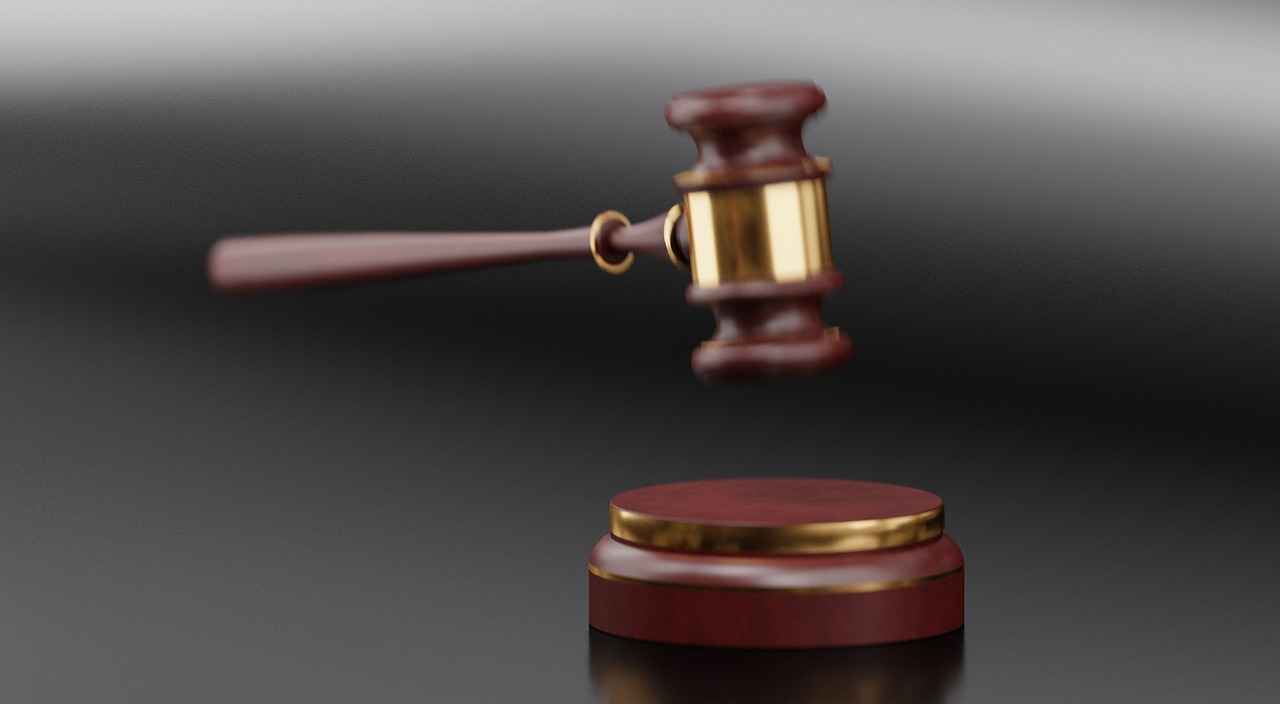
Property Disputes: Resolving Conflicts
Property disputes are a common source of conflict in the realm of real estate, often arising from misunderstandings or disagreements between parties regarding property ownership, boundaries, or usage rights. These disputes can be particularly complex, requiring knowledgeable attorneys who not only understand real estate law but also the specific local regulations that govern property transactions and ownership in their jurisdiction.
Property disputes can manifest in various forms, including boundary disputes, issues related to easements, title claims, and disagreements over lease agreements. Understanding the nature of the dispute is crucial in determining the right course of action and the type of legal representation needed. For instance, boundary disputes may require a surveyor’s input, while title claims might necessitate a thorough examination of public records.
When seeking an attorney for property disputes, it is essential to look for individuals who specialize in real estate law. Here are some tips for identifying qualified attorneys:
- Specialization: Ensure the attorney has a strong focus on real estate law and has handled property disputes similar to yours.
- Experience: Look for attorneys with a proven track record in resolving property disputes, particularly in your local area.
- Client Reviews: Research online reviews and testimonials to assess the attorney’s reputation and success rate in handling property-related cases.
Property disputes can often be resolved through either litigation or mediation. Understanding the differences between these two approaches can help you make an informed decision:
- Litigation: This involves taking the dispute to court, where a judge will make a binding decision. This process can be lengthy and costly, but it may be necessary for complex cases where mediation fails.
- Mediation: This is a less formal process where a neutral third party helps facilitate a resolution between the disputing parties. Mediation can be quicker and more cost-effective, often preserving relationships.
When interviewing potential attorneys, consider asking the following questions to gauge their suitability for your case:
- What is your experience with property disputes similar to mine?
- Do you prefer litigation or mediation for resolving disputes?
- What are your fees and payment structure?
While searching for a property dispute attorney, be vigilant for red flags that may indicate potential issues:
- Lack of Communication: If an attorney is difficult to reach or does not respond promptly to inquiries, it may be a sign of poor client service.
- Unclear Fee Structures: Avoid attorneys who are not transparent about their fees or who cannot provide a clear estimate of costs.
- Overpromising Results: Be cautious of attorneys who guarantee specific outcomes, as this is often unrealistic in legal matters.
In today’s digital age, several online platforms can assist you in finding qualified real estate attorneys:
- Legal Directories: Websites like Avvo and FindLaw provide listings of attorneys along with client reviews and ratings.
- State Bar Associations: Most state bar associations have searchable directories of licensed attorneys, where you can verify their credentials and disciplinary history.
- Social Media and Networking: Platforms like LinkedIn can provide insights into an attorney’s professional background and endorsements from peers.
In the realm of property disputes, having the right legal representation can significantly impact the outcome of your case. By understanding the nature of your dispute, seeking qualified attorneys, and being aware of potential pitfalls, you can navigate the complexities of real estate law with greater confidence. Remember that early intervention and expert guidance can often lead to more favorable resolutions.
Real Estate Law Specialization
When navigating the intricate world of real estate law, it is paramount to seek attorneys who specialize in this field and possess a comprehensive understanding of property disputes, particularly in a vibrant market like Madison, Wisconsin. Real estate transactions and disputes can be complex, and having the right legal representation can make a significant difference in the outcome of your case.
Why Specialization Matters
Real estate law encompasses a variety of issues, including property acquisition, leasing, zoning, and disputes between buyers and sellers. Attorneys who specialize in real estate law are typically more familiar with the nuances of local regulations and the specific challenges that can arise in property disputes. This specialization allows them to provide tailored advice and effective representation.
Finding Qualified Real Estate Attorneys in Madison
Here are some practical steps to find the best attorneys specializing in real estate law in Madison:
- Research Local Attorneys: Start by searching for law firms in Madison that focus on real estate law. Websites like Avvo or FindLaw can help you find qualified attorneys with relevant experience.
- Check Credentials: Look for attorneys who are members of professional organizations such as the American Bar Association or the Wisconsin Bar Association. These memberships often indicate a commitment to ongoing education and adherence to ethical standards.
- Review Client Testimonials: Read reviews and testimonials from previous clients to gauge the attorney’s reputation and success rate in handling similar cases. Websites like Yelp and Google Maps can provide insights into client experiences.
Understanding Property Disputes
Property disputes can arise from various issues, including boundary disputes, easements, and landlord-tenant disagreements. It’s essential to choose an attorney who not only understands the legal framework but also has experience resolving these specific types of disputes. A knowledgeable attorney can guide you through the complexities of real estate transactions and help mitigate potential conflicts.
Litigation vs. Mediation
When discussing your case with potential attorneys, inquire about their preferred methods for resolving property disputes. Some attorneys may favor litigation, while others may advocate for mediation as a more amicable and cost-effective solution. Understanding their approach can help you align your expectations and strategy for your case.
Red Flags to Avoid
While searching for a real estate attorney, be aware of potential red flags that may indicate a lack of professionalism or experience:
- Guarantees of Outcomes: Be cautious of attorneys who promise specific results. No attorney can guarantee the outcome of a case, as many factors can influence the final decision.
- Poor Communication: If an attorney is difficult to reach or does not respond promptly to inquiries, it may indicate a lack of commitment to your case.
- High Pressure Tactics: Avoid attorneys who pressure you into making quick decisions or signing contracts without fully understanding the implications.
Consultation and Case Evaluation
Most attorneys offer an initial consultation, which can be invaluable in assessing whether they are the right fit for your needs. During this meeting, discuss your case in detail and ask about their experience with similar property disputes. A competent attorney will provide insights into your case’s merits and outline potential strategies moving forward.
Conclusion
In summary, when seeking attorneys specializing in real estate law in Madison, it is crucial to conduct thorough research, evaluate credentials, and consider client feedback. By focusing on attorneys with a strong understanding of property disputes, you can ensure that you receive the best legal representation tailored to your specific needs.
Litigation vs. Mediation
When faced with property disputes, one of the most crucial decisions you will need to make is whether to pursue litigation or mediation. This choice can significantly influence your case strategy and the overall outcome of your dispute. Understanding the differences between these two approaches is essential for anyone seeking resolution in property-related conflicts.
Litigation involves taking your case to court, where a judge or jury will make a legally binding decision. This process can be lengthy, often taking months or even years to resolve. It typically involves extensive legal procedures, including discovery, depositions, and pre-trial motions. While litigation may provide a definitive resolution, it can also be costly and emotionally draining. Additionally, the public nature of court proceedings may not be ideal for parties wishing to keep their disputes private.
In contrast, mediation is a more collaborative approach to resolving disputes. In this process, a neutral third party, known as a mediator, facilitates discussions between the parties involved. Mediation aims to help both sides reach a mutually agreeable solution without the need for a court trial. This method is often quicker and less expensive than litigation, and it allows for greater flexibility in finding solutions that work for both parties. Furthermore, mediation is confidential, meaning that the details of the dispute remain private.
When discussing your case with potential attorneys, it is essential to inquire about their preferred approach to dispute resolution. Some attorneys may specialize in litigation and may be more inclined to take your case to court, while others may favor mediation and negotiation. Understanding their approach can help you align your case strategy with their expertise.
Additionally, consider the nature of your property dispute. If the parties involved are open to communication and willing to negotiate, mediation may be the best option. However, if you anticipate that the other party will be uncooperative or if the stakes are particularly high, litigation may be necessary to protect your interests.
Finally, when selecting an attorney, look for those who have experience in both litigation and mediation. A well-rounded attorney can provide you with valuable insights into the best course of action for your specific situation. They can assess the strengths and weaknesses of your case and help you navigate the complexities of property disputes effectively.
In summary, the choice between litigation and mediation is a pivotal one that can shape the trajectory of your property dispute. By discussing these options with potential attorneys and considering the dynamics of your case, you can develop a strategy that aligns with your goals and needs.

Landlord-Tenant Disputes: Know Your Rights
Landlord-tenant disputes are a prevalent issue in the United States, affecting countless individuals each year. These disputes can arise from various situations, including evictions, security deposit disputes, and disagreements over lease terms. Understanding your rights as a tenant or landlord is crucial in navigating these conflicts effectively. This article aims to provide insights into the common issues faced in landlord-tenant relationships and how to find the right legal representation to protect your interests.
Each state has its own set of landlord-tenant laws that govern rental agreements, tenant rights, and landlord responsibilities. Familiarizing yourself with these laws is essential before seeking legal counsel. For instance, in Wisconsin, landlords must follow specific procedures for eviction, including providing notice and allowing tenants to remedy lease violations. An attorney who specializes in landlord-tenant law can provide you with critical information about your rights and obligations under local statutes.
If you are facing eviction, it is vital to find an attorney experienced in handling such cases. Eviction laws can be complex, and having a knowledgeable lawyer can make a significant difference in the outcome of your situation. Look for attorneys who have a proven track record of successfully representing clients in eviction proceedings. They should be familiar with the local court system and have strategies in place to defend your rights effectively.
- Specialization: Seek attorneys who specialize in landlord-tenant law. They are more likely to be up-to-date with the latest legal changes and have a deeper understanding of the nuances involved.
- Reputation: Research potential lawyers through online reviews, testimonials, and professional ratings. Websites like Avvo and FindLaw can provide valuable insights into an attorney’s reputation and past client experiences.
- Consultation: Schedule a consultation to discuss your case. This meeting will help you gauge the attorney’s communication style and whether they understand your needs.
While searching for the right attorney, be aware of potential red flags. Avoid lawyers who:
- Guarantee Outcomes: No attorney can guarantee a specific outcome, as each case is unique. Be cautious of those who make unrealistic promises.
- Pressure You: A reputable attorney will provide you with options and allow you to make informed decisions without pressure.
- Have Poor Communication: If an attorney is difficult to reach or does not respond promptly to your inquiries, it may indicate a lack of commitment to your case.
Many landlord-tenant disputes can be resolved through negotiation or mediation rather than litigation. Therefore, it is essential to find an attorney with strong negotiation skills. A skilled lawyer can help facilitate discussions between you and the other party, potentially leading to a mutually beneficial resolution without the need for court intervention. Look for attorneys who have experience in mediation and can demonstrate a history of successful negotiations.
Before entering into a rental agreement, it is crucial to understand the terms outlined in the lease. A qualified attorney can help you review the lease to ensure it complies with local laws and protects your interests. Pay attention to clauses related to:
- Security Deposits: Know the regulations surrounding security deposits, including how much can be charged and the conditions for its return.
- Maintenance Responsibilities: Understand who is responsible for repairs and maintenance to avoid disputes later on.
- Termination Clauses: Be aware of the notice requirements for terminating the lease to ensure compliance.
In any landlord-tenant relationship, maintaining clear and documented communication is essential. Keep records of all correspondence with your landlord or tenant, including emails, text messages, and written notices. This documentation can serve as crucial evidence if a dispute arises and may assist your attorney in building a strong case on your behalf.
If you cannot afford a private attorney, consider reaching out to local legal aid organizations. Many cities offer services to assist low-income individuals with landlord-tenant disputes. These organizations can provide valuable resources and may help you find qualified legal representation.
In summary, landlord-tenant disputes can be challenging, but understanding your rights and seeking appropriate legal representation can help you navigate these issues effectively. By familiarizing yourself with local laws, identifying qualified attorneys, and maintaining clear communication, you can protect your interests and work towards a favorable resolution.
Understanding Local Laws
When dealing with landlord-tenant disputes, understanding the intricacies of local laws is essential. Wisconsin landlord-tenant laws are designed to protect the rights of both landlords and tenants, and having an attorney who is well-versed in these laws can make a significant difference in the outcome of any dispute. Here’s how to navigate this complex legal landscape effectively.
Choosing an attorney who specializes in Wisconsin landlord-tenant laws ensures that you receive accurate legal advice tailored to your specific situation. Local attorneys are familiar with the nuances of state statutes, local ordinances, and case law that may not be well-known to those practicing outside the state. This localized knowledge can be crucial in effectively representing your interests.
- Lease Agreements: Understanding the terms and conditions outlined in lease agreements is vital. An attorney can help interpret these documents and ensure compliance with state laws.
- Security Deposits: Wisconsin has specific regulations governing how security deposits must be handled, including the timeframe for returning deposits after a tenant vacates.
- Eviction Procedures: If you are a landlord seeking to evict a tenant or a tenant facing eviction, knowing the legal process is essential to protect your rights.
- Repairs and Maintenance: Both landlords and tenants have rights and responsibilities regarding property maintenance, which can lead to disputes if not clearly understood.
When searching for an attorney to handle landlord-tenant disputes in Wisconsin, consider the following steps:
- Research Local Attorneys: Start by looking for attorneys who specialize in landlord-tenant law within your area. Utilize platforms such as Avvo or FindLaw to find qualified professionals.
- Check Credentials: Verify the attorney’s credentials, including their education, years of practice, and any relevant certifications. Membership in local or state bar associations can also be a good indicator of their commitment to the field.
- Read Reviews: Look for client reviews and testimonials to gauge the attorney’s reputation. Positive feedback from previous clients can provide insight into their effectiveness and approach.
- Schedule Consultations: Many attorneys offer free initial consultations. Use this opportunity to discuss your case and assess their expertise and communication style.
While searching for an attorney, be vigilant for red flags that may indicate potential issues:
- Unclear Fee Structures: Avoid attorneys who are not transparent about their fees. Make sure you understand their billing practices, including hourly rates and any additional costs.
- Lack of Experience: Be cautious of attorneys who do not have a track record in landlord-tenant law. Experience in similar cases is crucial for effective representation.
- Poor Communication: If an attorney is difficult to reach or does not respond promptly to your inquiries, consider this a warning sign. Good communication is key to a successful attorney-client relationship.
In summary, understanding local laws and choosing the right attorney can significantly impact the outcome of landlord-tenant disputes in Wisconsin. By focusing on local expertise, verifying credentials, and being aware of red flags, you can ensure that you receive the best legal representation for your needs.
Experience with Eviction Cases
When facing the distressing situation of eviction, it is crucial to seek legal representation that can effectively safeguard your rights and interests. The complexities of eviction law can be overwhelming, and having an experienced attorney by your side can make a significant difference in the outcome of your case.
Why You Need an Experienced Eviction Attorney
Eviction cases can arise from various circumstances, including non-payment of rent, lease violations, or disputes over property conditions. An attorney with a solid background in eviction law will understand the intricacies of local regulations and can provide you with tailored advice. They will be able to assess your situation, identify potential defenses, and help you navigate the legal process.
How to Find Qualified Attorneys for Eviction Cases
- Research Local Law Firms: Start by looking for law firms in your area that specialize in landlord-tenant law. Websites and online directories can provide valuable information about their focus areas and client reviews.
- Check Bar Association Listings: The state or local bar association often has resources for finding qualified attorneys. They can provide referrals based on your specific legal needs.
- Consult Online Platforms: Websites like Avvo or FindLaw offer listings of attorneys along with ratings, reviews, and detailed profiles. This can help you gauge their experience and client satisfaction.
Key Credentials to Look For
When evaluating potential attorneys, consider their credentials. Look for:
- Experience: An attorney with a proven track record in eviction cases will be more adept at handling your situation. Inquire about their years of practice and the number of eviction cases they have managed.
- Specialization: Ensure the attorney specializes in landlord-tenant law, as this indicates a deeper understanding of the nuances involved in eviction cases.
- Client Testimonials: Reading reviews from previous clients can provide insights into the attorney’s effectiveness and approach.
Red Flags to Avoid
While searching for an attorney, be vigilant for potential red flags:
- Guarantees of Outcomes: Be wary of attorneys who promise specific results. Legal cases can be unpredictable, and no attorney should guarantee a favorable outcome.
- Lack of Communication: An attorney who is unresponsive or does not communicate effectively may not prioritize your case. Clear communication is essential for a successful attorney-client relationship.
- High Turnover Rates: Frequent changes in staff or attorneys at a firm can be a sign of instability. Look for firms with a solid reputation and consistent team members.
Consultation and Case Assessment
Once you have identified potential attorneys, schedule consultations to discuss your case. During these meetings, assess their approach to handling eviction cases, their understanding of local laws, and their willingness to answer your questions. A good attorney will take the time to explain the legal process and outline the possible strategies for your case.
Conclusion
Finding the right attorney for eviction cases is essential for protecting your rights and navigating the legal complexities involved. By conducting thorough research, evaluating credentials, and being mindful of red flags, you can secure the legal representation you need to effectively address your eviction situation.
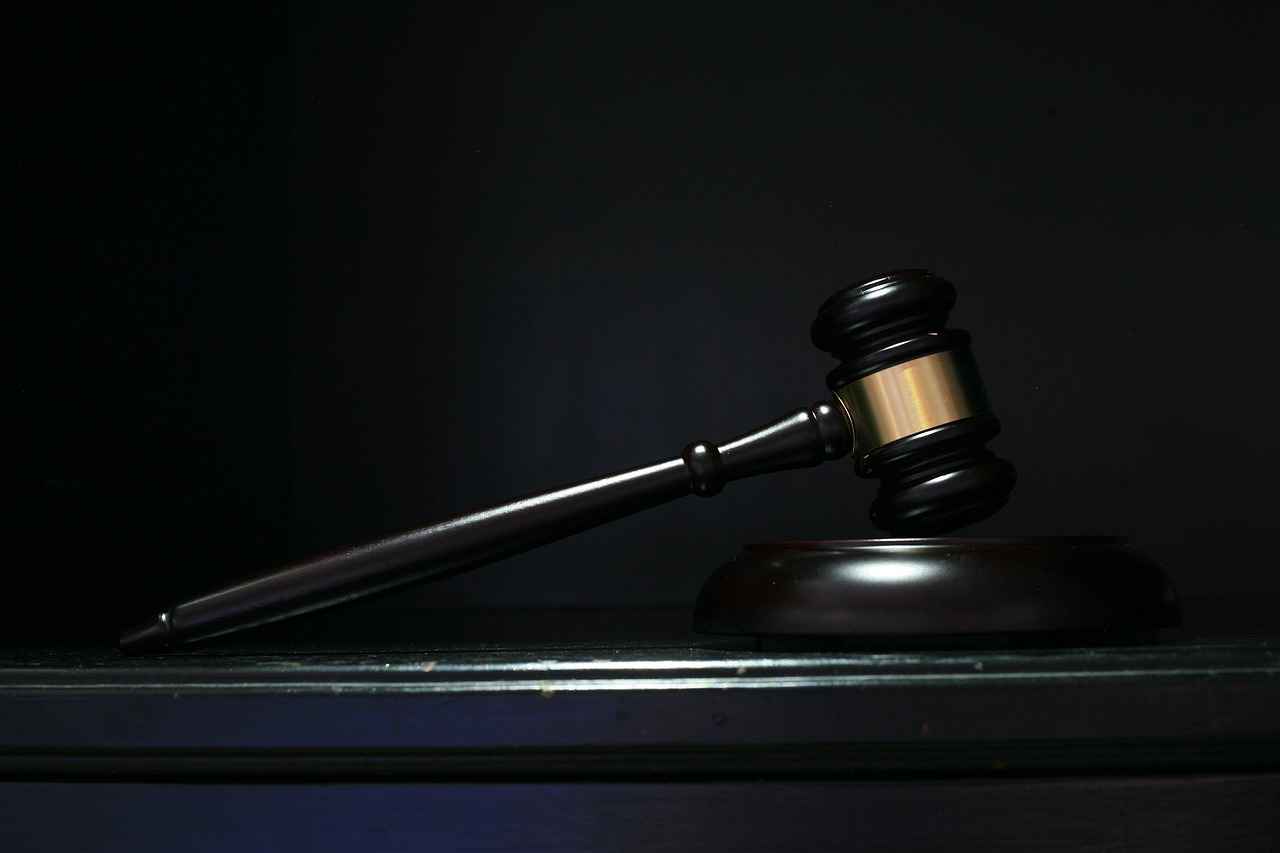
Defamation Cases: Protecting Your Reputation
In today’s digital age, where information spreads rapidly through various media channels, defamation cases have become increasingly prevalent. Defamation, which can manifest as either libel (written statements) or slander (spoken statements), can significantly impact an individual’s or organization’s reputation. Therefore, navigating these complex legal waters requires skilled attorneys who specialize in defamation law and understand the nuances of media law and reputation management.
When seeking legal representation for a defamation case, it’s crucial to identify attorneys with a strong background in defamation law. Look for professionals who have successfully handled similar cases, especially those involving high-profile clients or public figures. These attorneys should possess a deep understanding of the legal standards that must be met to prove defamation, including:
- Falsehood: The statement must be proven false.
- Publication: The statement must have been made to a third party.
- Fault: The plaintiff must show that the defendant acted with negligence or actual malice.
- Damages: The plaintiff must demonstrate that they suffered harm as a result of the statement.
To find qualified attorneys, consider using legal directories such as Avvo or FindLaw, which allow you to filter by practice area and location. Additionally, visiting local bar association websites can provide referrals to reputable lawyers specializing in defamation cases.
A competent defamation attorney will conduct a thorough evaluation of your claims, assessing the strength of your case and the evidence available. This process may involve:
- Gathering documentation of the defamatory statements
- Collecting witness statements to corroborate your claims
- Reviewing any relevant communications or publications
During initial consultations, ask potential attorneys how they plan to approach your case and what evidence they believe is necessary to establish your claims. This conversation will provide insight into their legal strategy and expertise.
Defamation laws can vary significantly from state to state, and understanding these differences is crucial. For example, some states have shorter statutes of limitations for filing defamation claims. In most jurisdictions, the statute of limitations for defamation is typically one to three years. Thus, it is essential to consult with an attorney who is well-versed in the specific laws of your state.
While searching for a defamation attorney, be vigilant for potential red flags that may indicate a lack of professionalism or expertise:
- Attorneys who guarantee specific outcomes or settlements.
- Those who are unwilling to provide references or past case examples.
- Lawyers who lack clear communication regarding fees and case processes.
Choosing the right attorney can make a significant difference in the outcome of your defamation case. By following these guidelines, you can ensure that you find a skilled legal professional who will effectively advocate for your rights and help protect your reputation.
Identifying Defamation Law Experts
When facing a defamation case, it is crucial to find an attorney who specializes in this intricate area of law. Defamation, which includes both libel (written statements) and slander (spoken statements), can significantly impact an individual’s reputation and livelihood. Therefore, having the right legal representation is essential.
Seek Attorneys with a Strong Background in Defamation Law
Begin your search by looking for attorneys who have a robust background in defamation law. This specialization is vital as defamation cases often involve complex issues surrounding freedom of speech, public interest, and the burden of proof. An attorney well-versed in these nuances will be better equipped to navigate the legal landscape effectively.
Experience in High-Profile Cases
It is particularly beneficial to seek attorneys who have experience handling high-profile cases. These cases often draw significant media attention and can involve public figures or sensitive information. An attorney familiar with the pressures and intricacies of high-stakes defamation cases will understand how to manage the public narrative while advocating for your rights.
Research and Referrals
Utilizing online resources can enhance your search for qualified defamation attorneys. Websites such as Avvo and Martindale-Hubbell provide valuable information on attorneys’ backgrounds, client reviews, and areas of expertise. Additionally, consider seeking referrals from trusted sources, such as friends or colleagues who have had positive experiences with legal representation.
Evaluate Their Track Record
When narrowing down your options, evaluate the attorney’s track record in defamation cases. Look for success stories, including settlements or verdicts in favor of their clients. An attorney with a proven history of winning defamation cases is more likely to provide effective representation.
Consultation: Assessing Compatibility
Once you have identified potential attorneys, schedule consultations to discuss your case. This meeting provides an opportunity to assess their understanding of defamation law and their approach to your specific situation. During this consultation, pay attention to how well the attorney communicates and whether they demonstrate a genuine interest in your case.
Understanding Fees and Payment Structures
Discuss the attorney’s fees during your consultation. Many defamation attorneys operate on a contingency fee basis, meaning they only get paid if you win your case. Ensure you understand the fee structure and any additional costs that may arise during the legal process. This transparency is crucial for avoiding unexpected financial burdens later on.
Red Flags to Watch For
While searching for a defamation attorney, be vigilant for red flags. Avoid attorneys who guarantee specific outcomes, as defamation cases can be unpredictable. Additionally, steer clear of those who lack a clear communication strategy or do not provide detailed explanations of the legal process. Trustworthy attorneys will prioritize maintaining open lines of communication and ensuring you are informed every step of the way.
Conclusion
Finding the right attorney for your defamation case is essential for protecting your reputation and achieving a favorable outcome. By seeking attorneys with a strong background in defamation law, particularly those experienced in high-profile cases, and by following the outlined steps, you can ensure that you receive the best possible legal representation.
Evaluating Evidence and Claims
When it comes to legal matters, the strength of your claims and the evidence supporting them can make all the difference in the outcome of your case. A good attorney will not only assess the validity of your claims but will also meticulously evaluate the evidence available to bolster your case. This process is essential for establishing a solid foundation for any legal battle, whether it involves personal injury, defamation, or any other legal issue.
In the realm of legal representation, understanding the nuances of your case is vital. An experienced attorney will begin by conducting a thorough review of all relevant documents, witness statements, and any other evidence that may support your claims. This evaluation is crucial for identifying the strengths and weaknesses of your case. For instance, in personal injury cases, the attorney may examine medical records, accident reports, and eyewitness accounts to build a compelling narrative. Similarly, in defamation cases, they will scrutinize the statements made, the context in which they were made, and the potential harm caused to your reputation.
Furthermore, a qualified attorney will also consider the legal standards that apply to your claims. For example, in personal injury cases, they will need to demonstrate that the other party was negligent and that this negligence directly resulted in your injuries. This requires a deep understanding of both the law and the specific circumstances surrounding your case.
Moreover, effective communication is key when evaluating evidence and claims. A proficient attorney will keep you informed throughout the process, explaining their findings and the implications for your case. They should be able to articulate how the evidence supports your claims and what steps will be taken to present this evidence effectively in court.
When seeking legal representation, it is wise to ask potential attorneys about their approach to evaluating claims and evidence. Inquire about their past experiences with similar cases and how they handled the evidence in those situations. This will give you insight into their analytical skills and their ability to build a strong case.
In addition to evaluating evidence, a competent attorney will also help you understand the potential outcomes of your case based on the strength of your claims. They will provide realistic expectations and strategies for moving forward, whether that involves pursuing a settlement or preparing for trial.
Lastly, it’s important to be aware of red flags when selecting an attorney. Be cautious of those who make unrealistic promises about the outcome of your case or who do not take the time to thoroughly evaluate your evidence. A reputable attorney will prioritize your best interests and approach your case with diligence and integrity.
In conclusion, the evaluation of evidence and claims is a fundamental aspect of legal representation. By choosing an attorney who is skilled in this area, you can significantly enhance your chances of achieving a favorable outcome in your case.

Employment Disputes: Navigating Workplace Issues
Employment disputes are increasingly common in today’s workforce, arising from various issues such as discrimination, wrongful termination, and harassment. These conflicts can significantly impact an employee’s career and well-being, making it essential to find the right legal representation to navigate these challenging situations. In this article, we will explore how to identify qualified attorneys specializing in employment law and what factors to consider when seeking legal assistance.
When looking for an attorney to handle your employment dispute, it is crucial to seek professionals who specialize in employment law. This area of law encompasses a range of issues, including workplace discrimination, wage disputes, and wrongful termination. Attorneys who focus on employment law will have a deeper understanding of the nuances involved in these cases and will be better equipped to represent your interests effectively.
It is essential to ensure that your attorney is well-versed in employee rights. They should be knowledgeable about federal and state labor laws, including the Equal Employment Opportunity Commission (EEOC) guidelines and the Fair Labor Standards Act (FLSA). An attorney who understands these rights can provide you with the best possible advice and advocacy, helping you to navigate the complexities of your case.
When selecting an attorney, consider their experience and track record in handling employment disputes. Look for lawyers who have successfully represented clients in cases similar to yours. You can assess their effectiveness by asking about their past case outcomes, settlement amounts, and trial experience. An attorney with a proven history of success will likely be more adept at negotiating favorable outcomes for you.
Researching client reviews and testimonials can provide valuable insight into an attorney’s reputation and approach. Websites like Avvo, Martindale-Hubbell, and Google Reviews can offer feedback from previous clients. Pay attention to comments regarding the attorney’s communication style, responsiveness, and overall client satisfaction. This information can help you gauge whether a particular attorney is a good fit for your needs.
Most attorneys offer a free initial consultation, which can be an excellent opportunity to evaluate their suitability for your case. During this meeting, ask about their approach to handling employment disputes and how they plan to advocate for your rights. Effective communication is vital; ensure that the attorney listens to your concerns and provides clear explanations of the legal process. A good attorney should make you feel comfortable and supported throughout your case.
While searching for an attorney, be mindful of potential red flags. Avoid attorneys who make unrealistic promises regarding case outcomes or those who pressure you into making quick decisions. Additionally, be cautious of lawyers who are not transparent about their fees or who lack a clear communication strategy. These warning signs can indicate a lack of professionalism or ethical standards.
Another effective way to find a qualified employment attorney is through networking and referrals. Speak with friends, family, or colleagues who have had similar experiences and ask for their recommendations. Additionally, consider reaching out to local bar associations or legal aid organizations for referrals to reputable attorneys in your area.
In today’s digital age, online legal platforms can be invaluable resources for finding qualified attorneys. Websites like LegalMatch, FindLaw, and Justia allow you to search for attorneys based on their practice areas and location. These platforms often provide detailed profiles, including education, experience, and client reviews, making it easier to compare potential candidates.
Before hiring an attorney, it’s crucial to understand their fee structures. Many employment lawyers work on a contingency fee basis, meaning they only get paid if you win your case. Others may charge hourly rates or flat fees. Make sure to discuss payment options during your initial consultation to avoid any surprises later on. A transparent attorney will provide you with a clear understanding of their fees and any additional costs that may arise during your case.
Finding the right attorney for your employment dispute is essential to achieving a favorable outcome. By focusing on specialization, experience, and communication, you can identify a qualified legal professional who will advocate for your rights. Remember to conduct thorough research, seek referrals, and utilize online resources to ensure you make an informed decision. With the right representation, you can navigate your employment dispute with confidence.
Specialization in Employment Law
When navigating the complex landscape of employment law, it is essential to find an attorney who not only specializes in this field but also possesses a proven track record of success in handling cases similar to yours. Employment law encompasses a wide range of issues, including discrimination, wrongful termination, wage disputes, and harassment. Therefore, selecting the right attorney can significantly impact the outcome of your case.
Researching Employment Law Attorneys
Begin your search by looking for attorneys who specifically focus on employment law. This specialization is crucial as it ensures that the attorney is well-versed in the intricacies of labor regulations, employee rights, and workplace policies. You can start by utilizing online legal directories such as Avvo, FindLaw, and Nolo. These platforms allow you to filter your search based on practice area and location, helping you find qualified attorneys in your area.
Evaluating Experience and Success Rates
When considering potential attorneys, pay close attention to their experience and success rates in handling employment law cases. Look for attorneys who have a history of winning cases similar to yours, as this can provide insight into their capabilities. Many attorneys will showcase their past cases and outcomes on their websites, giving you a clearer picture of their expertise.
Client Reviews and Testimonials
Another important step in your search is to read client reviews and testimonials. Websites like Yelp and Google Maps often feature reviews from previous clients. Pay attention to the feedback regarding the attorney’s communication skills, responsiveness, and overall effectiveness. Positive testimonials can indicate a reliable attorney who prioritizes client satisfaction.
Consultation and Case Assessment
Once you have narrowed down your options, schedule consultations with potential attorneys. During these meetings, assess how they approach your case and their understanding of employment law. A competent attorney will provide a thorough evaluation of your situation and offer insights into the strengths and weaknesses of your case. They should also explain the legal process and potential outcomes, ensuring that you feel informed and confident in your representation.
Understanding Fees and Payment Structures
Discussing fees upfront is vital to avoid any surprises later on. Many employment law attorneys operate on a contingency fee basis, meaning they only get paid if you win your case. Ensure you understand their fee structure and any additional costs that may arise during the legal process. This transparency will help you make an informed decision and avoid potential financial strain.
Red Flags to Avoid
While searching for an employment law attorney, be cautious of certain red flags. Avoid attorneys who guarantee specific outcomes, as no lawyer can predict the result of a case with certainty. Additionally, be wary of those who do not provide clear communication or seem disinterested in your case. A good attorney should be responsive and willing to answer your questions, demonstrating their commitment to your case.
Networking and Referrals
Lastly, consider reaching out to your professional network for referrals. Colleagues, friends, or family members who have faced similar employment issues may have recommendations for attorneys they trust. Personal referrals can often lead to finding reliable legal representation and provide you with peace of mind as you navigate your case.
In conclusion, finding the right attorney for employment law issues is crucial to ensuring your rights are protected and your case is handled effectively. By focusing on specialization, experience, client feedback, and transparent communication, you can increase your chances of securing a qualified attorney who will advocate for your best interests.
Understanding Employee Rights
In today’s dynamic work environment, understanding employee rights is crucial for safeguarding your interests and ensuring fair treatment in the workplace. Employee rights encompass a wide range of protections that are designed to promote a safe, equitable, and dignified working experience. These rights can vary by state and industry, but several fundamental principles apply universally across the United States.
Key Employee Rights to Know
- Right to Fair Compensation: Employees are entitled to receive fair wages for their work, including overtime pay for hours worked beyond the standard 40 hours per week.
- Right to a Safe Work Environment: Employers must provide a workplace that is free from recognized hazards that could cause serious harm.
- Right to Non-Discrimination: Employees cannot be discriminated against based on race, gender, age, religion, disability, or other protected characteristics.
- Right to Family and Medical Leave: Under the Family and Medical Leave Act (FMLA), eligible employees can take unpaid leave for specific family and medical reasons without fear of losing their job.
- Right to Privacy: Employees have a reasonable expectation of privacy in their personal belongings and communications, although this can vary based on company policy.
Finding an Attorney Well-Versed in Employee Rights
When seeking legal representation for employment-related issues, it is essential to find an attorney who specializes in employment law and has a solid understanding of employee rights. Here are some tips to ensure you find the right legal advocate:
- Look for Specialization: Search for attorneys who focus specifically on employment law. Their specialized knowledge will be invaluable in navigating complex employment issues.
- Check Credentials: Verify the attorney’s education, experience, and any relevant certifications. Membership in organizations such as the National Employment Lawyers Association (NELA) can indicate a commitment to employee rights.
- Read Client Reviews: Online reviews and testimonials can provide insight into the attorney’s effectiveness and client satisfaction. Look for patterns in feedback regarding communication, professionalism, and outcomes.
- Consultation: Schedule a consultation to discuss your case. This meeting will allow you to assess the attorney’s understanding of your situation and their proposed strategies.
- Ask About Fees: Ensure you understand the attorney’s fee structure upfront. Many employment attorneys work on a contingency fee basis, meaning they only get paid if you win your case.
Red Flags to Avoid
- Guarantees of Outcomes: Be cautious of any attorney who promises specific results. Legal cases can be unpredictable, and no attorney can guarantee a win.
- Poor Communication: If an attorney is unresponsive during initial consultations, this may indicate a lack of attention to your case.
- Negative Reviews: Take note of any consistent complaints about the attorney’s professionalism or effectiveness from previous clients.
By being informed about your employee rights and taking the time to find a qualified attorney, you can effectively advocate for yourself in the workplace. Whether you are facing discrimination, wrongful termination, or any other employment issue, having the right legal support can make a significant difference in the outcome of your case.

Product Liability: Holding Manufacturers Accountable
Product liability cases represent a significant area of law that deals with injuries or damages caused by defective or unsafe products. These cases often arise when a consumer is harmed due to a flaw in the design, manufacturing, or marketing of a product. Given the complexities involved in proving liability, it is essential to engage an attorney with specialized expertise in this field.
Product liability laws vary by state but generally fall under three primary categories: design defects, manufacturing defects, and failure to warn. Understanding these categories can help you identify the specific nature of your case and the type of attorney you need. For instance, design defects occur when a product is inherently unsafe due to its design, while manufacturing defects happen during the production process. Failure to warn involves inadequate instructions or warnings about the product’s potential risks.
When searching for a product liability attorney, consider the following steps:
- Specialization: Look for attorneys who specialize in product liability law. This specialization ensures they have the necessary knowledge and experience to navigate the complexities of your case.
- Track Record: Investigate the attorney’s history of handling product liability cases. A proven track record of successful settlements or verdicts can be a strong indicator of their capability.
- Client Reviews: Read online reviews and testimonials to gauge past clients’ satisfaction. Websites like Avvo and Martindale-Hubbell can provide insights into an attorney’s reputation.
It is crucial to assess an attorney’s credentials:
- Education: Check their educational background and any additional certifications relevant to product liability.
- Years in Practice: Experience matters. Attorneys with years of practice in product liability are likely to be more adept at handling your case.
- Professional Associations: Memberships in organizations like the American Association for Justice (AAJ) can indicate a commitment to ongoing education and professionalism.
Product liability claims often intersect with consumer protection laws. Attorneys well-versed in these laws can provide invaluable assistance in navigating your case. Look for attorneys who:
- Stay Updated: Ensure they are knowledgeable about current consumer protection statutes and regulations.
- Have a Network: A strong network of experts, such as engineers and safety analysts, can help substantiate your claims.
Before committing to an attorney, schedule a consultation to discuss your case. During this meeting:
- Assess Their Approach: Ask how they would handle your case and what strategies they would employ.
- Discuss Fees: Understand their fee structure, including any contingency fees that may apply.
While searching for an attorney, be mindful of potential red flags:
- Guarantees of Success: Be cautious of attorneys who guarantee specific outcomes; legal cases are inherently unpredictable.
- Poor Communication: An attorney who is difficult to reach or does not communicate clearly may not be the right fit for you.
- Lack of Transparency: Avoid lawyers who are vague about their fees or case strategies.
In summary, product liability cases require a thorough understanding of both the legal landscape and the specific nuances of the products involved. By following the outlined steps and being vigilant about qualifications and experience, you can find a qualified attorney who will effectively advocate for your rights and help you seek justice.
Experience with Product Liability Cases
When dealing with product liability cases, it is crucial to choose an attorney who has a strong background in this specific area of law. Product liability involves holding manufacturers, distributors, and retailers accountable for injuries caused by defective products. To ensure effective representation, consider the following guidelines when selecting an attorney.
- Look for Specialized Experience: It is essential to find attorneys who specialize in product liability law. These professionals should have a proven track record of successfully representing clients in similar cases. Check their history for settlements and verdicts that demonstrate their expertise in navigating the complexities of product liability claims.
- Assess Their Knowledge of Relevant Laws: An attorney well-versed in consumer protection laws and regulations is vital. Understanding federal and state laws governing product safety can significantly impact the outcome of your case. Make sure the attorney you choose has a solid grasp of these laws and how they apply to your specific situation.
- Evaluate Their Resources: Product liability cases often require extensive investigation and expert testimony. Ensure that the attorney has access to the necessary resources, including expert witnesses, accident reconstruction specialists, and medical professionals who can provide credible testimony to support your claim.
- Client Reviews and Testimonials: Researching client reviews can provide insight into an attorney’s reputation and effectiveness. Look for testimonials that highlight successful outcomes in product liability cases. Websites like Avvo, Martindale-Hubbell, and Google Reviews can be valuable resources for gathering feedback from previous clients.
- Consultation Approach: A thorough initial consultation is crucial. During this meeting, assess how the attorney approaches your case. They should listen to your concerns, ask pertinent questions, and provide a clear outline of potential strategies. This interaction can help you gauge their commitment and understanding of your situation.
- Red Flags to Avoid: Be cautious of attorneys who make unrealistic promises or guarantees regarding the outcome of your case. Legal proceedings can be unpredictable, and no attorney can assure a specific result. Additionally, watch for those who are vague about their fees or do not provide a clear breakdown of costs associated with your case.
- Professional Affiliations: Consider attorneys who are members of professional organizations such as the American Association for Justice (AAJ) or state bar associations. Membership in these organizations often indicates a commitment to staying updated on the latest developments in product liability law.
In conclusion, finding an experienced attorney for product liability cases requires careful consideration of their expertise, resources, and client feedback. By following these guidelines, you can enhance your chances of securing effective legal representation and achieving a favorable outcome in your case.
Knowledge of Consumer Protection Laws
When navigating the complexities of product liability cases, it is essential to have a solid understanding of consumer protection laws. These laws are designed to protect consumers from unfair or deceptive practices, ensuring that products are safe and meet certain standards. As a legal expert with over 30 years of experience, I can emphasize that having an attorney well-versed in these laws can significantly impact the outcome of your case.
First and foremost, look for attorneys who specialize in consumer protection and product liability. These professionals will have the necessary knowledge to navigate the intricate legal landscape and advocate effectively on your behalf. They should be familiar with both federal and state regulations that govern consumer products. For instance, the Consumer Product Safety Commission (CPSC) enforces regulations that ensure the safety of consumer products, and your attorney should be able to interpret and apply these regulations to your specific case.
In addition to specialization, consider the attorney’s track record in handling similar cases. A seasoned attorney will have a history of successful outcomes in product liability claims, demonstrating their ability to effectively argue and negotiate on your behalf. Look for evidence of settlements or verdicts in favor of clients that mirror your situation. This can often be found on the attorney’s website or through legal review platforms.
Another critical factor is the attorney’s communication style. You should feel comfortable discussing your case and asking questions. A good attorney will take the time to explain the legal process, your rights, and the potential outcomes. They should also provide clear information about their fee structure and any costs associated with your case.
When searching for an attorney, utilize various platforms to gather information. Websites like Avvo, FindLaw, and Lawyers.com offer reviews and ratings of attorneys, helping you make an informed decision. Additionally, consider reaching out to local bar associations, which can provide referrals to qualified attorneys in your area.
Be cautious of red flags when selecting an attorney. Avoid those who guarantee specific outcomes, as this can be a sign of unprofessionalism or lack of experience. Additionally, be wary of attorneys who do not communicate clearly about fees or who pressure you to make quick decisions without fully understanding your case.
In conclusion, finding an attorney with a solid understanding of consumer protection laws is vital when dealing with product liability cases. By focusing on specialization, track record, communication, and utilizing reputable platforms for research, you can ensure that you are well-represented and that your rights as a consumer are protected.
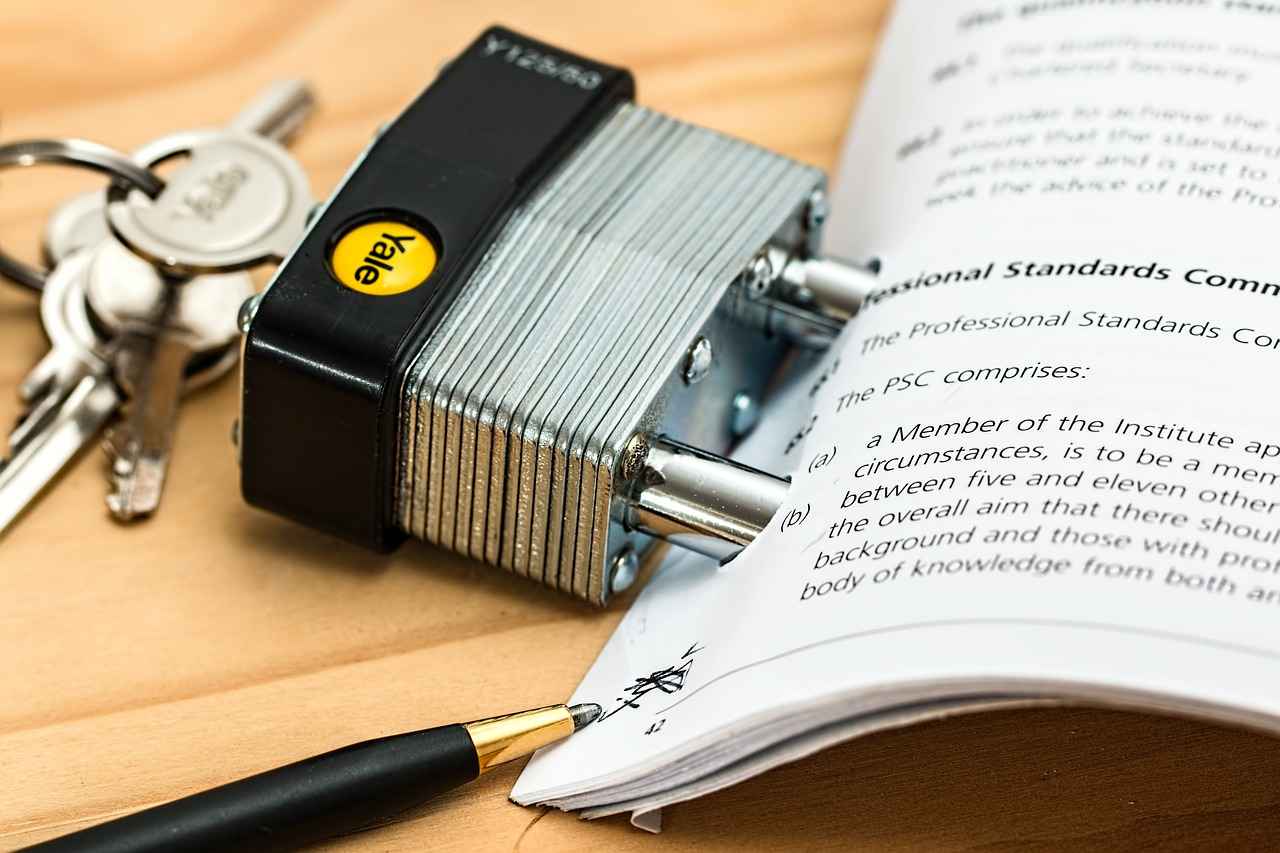
Wrongful Death: Seeking Justice for Loved Ones
Experiencing the loss of a loved one due to someone else’s negligence is an incredibly painful ordeal. In such tragic circumstances, pursuing a wrongful death claim can provide a path toward justice and compensation for the surviving family members. However, navigating the complexities of wrongful death cases requires the expertise of a skilled attorney who understands the emotional and legal intricacies involved.
Wrongful death cases arise when an individual’s death is caused by the negligent or intentional actions of another party. These cases can stem from various incidents, including car accidents, medical malpractice, workplace accidents, and defective products. The key to a successful wrongful death claim lies in establishing that the defendant’s actions directly contributed to the death of the victim.
When searching for an attorney to handle a wrongful death case, it is crucial to find someone who not only possesses legal expertise but also demonstrates compassion and understanding. The emotional weight of losing a loved one can be overwhelming, and having an attorney who is empathetic can significantly ease the burden during this difficult time.
- Referrals: Start by asking friends, family, or colleagues for recommendations. Personal experiences can lead you to trustworthy attorneys.
- Online Reviews: Utilize platforms such as Avvo, Martindale-Hubbell, or Google Reviews to read client testimonials and assess the attorney’s reputation.
- Professional Associations: Look for attorneys who are members of organizations like the American Association for Justice or local bar associations, as these affiliations often indicate a commitment to ethical standards and continuing education.
It is essential to choose an attorney who specializes in wrongful death litigation and has a proven track record of successful outcomes. Ask potential candidates about their experience with similar cases and the results they have achieved. A strong history of settlements or verdicts in wrongful death cases can indicate an attorney’s capability to handle your claim effectively.
Most wrongful death attorneys work on a contingency fee basis, meaning they only get paid if you win your case. This arrangement can alleviate financial pressure during a challenging time. However, it is vital to discuss the fee structure upfront, including any potential costs that may arise during the legal process.
During the initial consultation, you will have the opportunity to discuss the details of your case with the attorney. This meeting is crucial for evaluating whether the attorney is the right fit for your needs. Prepare to ask questions about their experience, approach to your case, and how they plan to communicate with you throughout the process. A good attorney will be transparent and provide clear answers, helping you feel more comfortable moving forward.
- Guarantees of Outcomes: Be cautious of attorneys who promise specific results. Legal cases can be unpredictable, and no attorney can guarantee a particular outcome.
- Lack of Communication: If an attorney is unresponsive during initial communications, it may be a sign of how they will handle your case.
- Pressure Tactics: Avoid attorneys who pressure you to sign contracts quickly or make decisions without giving you adequate time to consider your options.
In wrongful death cases, finding the right attorney can make a significant difference in the outcome of your claim. By conducting thorough research, evaluating experience, and ensuring clear communication, you can find a compassionate and skilled legal representative to advocate for your rights and help you seek justice for your loved one.
Compassionate Representation
When navigating the challenging landscape of legal matters, especially in sensitive cases such as wrongful death, finding an attorney who exhibits compassion and understanding is crucial. These qualities not only provide emotional support but also ensure that your legal representation is aligned with your needs during such a difficult time.
In the aftermath of a personal loss, the legal process can feel overwhelming. An attorney who demonstrates genuine empathy can help ease this burden. They understand the emotional weight of your situation and can offer guidance that respects your feelings while also advocating fiercely for your rights. Here are some essential factors to consider when seeking compassionate representation:
- Initial Consultation: During your first meeting, assess whether the attorney listens actively and responds with empathy. A good attorney will take the time to understand your story and the nuances of your case.
- Communication Style: Look for attorneys who communicate in a way that puts you at ease. They should explain legal terms and processes clearly, ensuring you feel informed and involved.
- Track Record of Compassionate Cases: Research their past cases and client testimonials. Attorneys who have successfully handled similar cases often demonstrate a commitment to providing compassionate representation.
- Support Resources: Inquire if the attorney can connect you with support resources, such as counseling services or support groups. This shows their investment in your overall well-being, not just the legal outcome.
- Flexibility and Availability: Choose an attorney who is accessible and willing to adjust their schedule to accommodate your needs. This flexibility can be especially important during emotionally charged times.
Moreover, it is essential to seek attorneys who not only possess legal expertise but also prioritize the emotional aspects of your case. For instance, they should be aware of the potential trauma associated with wrongful death claims and approach your case with sensitivity.
Another aspect to consider is the attorney’s approach to settlements versus litigation. A compassionate attorney will discuss the pros and cons of each option, helping you make informed decisions that align with your emotional readiness and desired outcomes.
As you navigate this process, remember that the right attorney can significantly impact not only the legal outcome but also your emotional journey. By prioritizing compassion and understanding in your search for legal representation, you can find an attorney who truly advocates for your best interests while providing the support you need during this challenging time.
Experience in Wrongful Death Litigation
When dealing with the aftermath of a wrongful death, it is essential to have a legal advocate who understands the complexities of such cases. Wrongful death litigation can be emotionally taxing, and the legal landscape is often intricate. Therefore, seeking an attorney with a proven track record in this specialized area is crucial for effective advocacy.
Experience Matters
To find the right attorney for your wrongful death case, start by focusing on their experience in handling similar cases. Look for attorneys who have dedicated their practice to wrongful death and personal injury law. Their familiarity with the nuances of these cases can significantly influence the outcome of your claim. A seasoned attorney will know how to navigate the legal system, handle negotiations, and present compelling arguments in court.
Proven Track Record of Success
It’s essential to review the attorney’s past performance in wrongful death litigation. Look for case results that demonstrate their ability to secure favorable settlements or verdicts for their clients. An attorney with a strong history of successful outcomes can instill confidence that they possess the necessary skills and knowledge to advocate effectively for your case.
Client Testimonials and Reviews
Researching client testimonials and online reviews can provide valuable insights into an attorney’s reputation. Websites like Avvo, Martindale-Hubbell, and Google Reviews can help you gauge client satisfaction and the attorney’s overall standing within the community. Positive feedback from previous clients often indicates a commitment to providing quality legal representation.
Initial Consultation
Many attorneys offer a free initial consultation, which can be an excellent opportunity to evaluate their approach. During this meeting, ask about their experience with wrongful death cases and their strategy for handling your specific situation. Pay attention to how they communicate; a good attorney should listen to your concerns and provide clear, honest answers.
Understanding of State Laws
Each state has its own laws governing wrongful death claims, including statutes of limitations and the types of damages that can be claimed. Ensure that your attorney is well-versed in Wisconsin’s wrongful death laws if you are located in Madison or any part of the state. Their knowledge of local regulations will be crucial in building a strong case on your behalf.
Compassion and Support
Choosing an attorney who demonstrates compassion and empathy is vital during this difficult time. You want someone who understands the emotional toll of losing a loved one and who will treat you with respect and sensitivity. A supportive attorney will not only advocate for your legal rights but also provide guidance and reassurance throughout the process.
Fee Structure and Transparency
Before hiring an attorney, clarify their fee structure. Many wrongful death attorneys work on a contingency fee basis, meaning they only get paid if you win your case. Ensure you understand the terms of this arrangement, including any additional costs that may arise during litigation. Transparency regarding fees can prevent misunderstandings later on.
Red Flags to Watch For
- Attorneys who guarantee specific outcomes or settlements.
- Lack of communication or difficulty in reaching them.
- Pressure to sign contracts without fully understanding the terms.
- Negative reviews or a history of disciplinary actions.
In summary, finding an attorney with experience in wrongful death litigation is paramount for ensuring effective advocacy. Look for proven track records, client testimonials, and a compassionate approach to navigate this challenging time successfully. By following these guidelines, you can increase your chances of finding a qualified legal professional who will advocate for your rights and help you seek justice for your loved one.

Class Action Lawsuits: Joining Forces
Class action lawsuits serve as a powerful legal tool that allows a group of individuals, often referred to as plaintiffs, to collectively seek justice against a common defendant. These cases typically arise when numerous people suffer similar injuries or damages due to the actions of a corporation or entity. For instance, class actions often emerge in situations involving defective products, widespread fraud, or violations of consumer rights. The complexity of these cases necessitates attorneys who possess specialized skills in mass tort litigation.
Class action lawsuits are significant not only for the plaintiffs involved but also for the legal system as a whole. They enable individuals to pool their resources, making it more feasible to take on large corporations that may otherwise escape accountability. By joining forces, plaintiffs can share the costs of litigation, which can be substantial, and increase their chances of securing a favorable outcome. This collective approach also sends a strong message to potential wrongdoers about the repercussions of their actions.
When seeking an attorney for a class action lawsuit, it is essential to look for those with specific expertise in this area. Here are some key points to consider:
- Experience in Class Action Litigation: Look for attorneys who have successfully handled class action cases in the past. Their familiarity with the unique challenges and procedures involved in these lawsuits can significantly impact the case’s outcome.
- Track Record of Success: Investigate the attorney’s history of settlements and verdicts in class action lawsuits. A proven track record indicates their capability to navigate complex legal waters effectively.
- Understanding of Relevant Laws: Class action lawsuits often involve intricate legal frameworks, including federal and state laws. Ensure the attorney is well-versed in these regulations to provide you with informed guidance.
Understanding the class action process is crucial for potential plaintiffs. A knowledgeable attorney will guide you through the various stages, which typically include:
1. **Filing a Complaint:** The lead plaintiff (or plaintiffs) files a complaint in court, outlining the claims against the defendant.2. **Class Certification:** The court must certify the class, determining whether the case meets the criteria for a class action.3. **Discovery Phase:** Both parties gather evidence and exchange information relevant to the case.4. **Settlement Negotiation or Trial:** The case may settle before trial, or if no agreement is reached, it will proceed to trial.5. **Distribution of Damages:** If successful, damages awarded are distributed among the class members.
Here are some practical methods to find qualified attorneys for class action lawsuits:
- Referrals: Seek recommendations from friends, family, or colleagues who have experience with class action cases.
- Online Legal Directories: Utilize platforms like Avvo, Martindale-Hubbell, and FindLaw to search for attorneys specializing in class action lawsuits.
- Consult Local Bar Associations: Many local bar associations offer referral services that can connect you with attorneys experienced in class action litigation.
- Initial Consultations: Many attorneys offer free initial consultations. Use this opportunity to gauge their expertise, communication style, and whether they are a good fit for your case.
While searching for a class action attorney, it’s equally important to be aware of potential red flags:
- Guarantees of Outcomes: Be cautious of attorneys who promise specific results. The legal process is unpredictable, and no attorney can guarantee success.
- Lack of Transparency: Ensure the attorney provides clear information about fees, potential costs, and the structure of the case.
- Limited Experience: Avoid attorneys who lack experience in class action lawsuits or have not handled cases similar to yours.
In conclusion, class action lawsuits offer a vital avenue for individuals seeking justice against larger entities. By understanding the process and carefully selecting a qualified attorney, you can enhance your chances of a successful outcome. Always ensure that your legal representative possesses the necessary experience and expertise to navigate the complexities of class action litigation effectively.
Expertise in Class Action Cases
When it comes to legal representation in class action lawsuits, selecting the right attorney is crucial for achieving favorable outcomes. Class action lawsuits are unique legal proceedings that allow a group of individuals with similar claims against a defendant to join together, which can be particularly effective in cases involving corporate wrongdoing or widespread harm. Therefore, it is essential to choose attorneys who not only have experience in class action lawsuits but also have a history of successful outcomes in similar cases.
Class action lawsuits can encompass a wide range of issues, from consumer fraud to environmental disasters. These cases often involve complex legal frameworks and require attorneys who are adept at managing large groups of plaintiffs. Experience in mass tort litigation is a key factor to consider when searching for a qualified attorney. Look for legal professionals who have successfully navigated the intricacies of class action cases, as their insights and strategies can significantly impact the trajectory of your case.
Start your search by compiling a list of attorneys or law firms that specialize in class action lawsuits. Utilize online legal directories, such as Avvo or FindLaw, to find qualified candidates. These platforms provide valuable information, including attorney ratings, reviews from former clients, and details about their practice areas. Pay particular attention to any awards or recognitions they may have received for their work in class actions.
Once you have identified potential attorneys, delve deeper into their track records. Successful outcomes in previous class action cases can be a strong indicator of an attorney’s capabilities. Request details about past cases they have handled, including the number of plaintiffs involved, the types of claims made, and the results achieved. This information can provide insight into their ability to effectively represent your interests in a similar context.
Most attorneys offer initial consultations, which can be a valuable opportunity to assess their communication style and approach to your case. During this meeting, ask questions about their experience with class action lawsuits and how they plan to handle your specific situation. Pay attention to how well they explain complex legal concepts and whether they are open to addressing your concerns. A transparent and communicative attorney is essential for navigating the complexities of a class action lawsuit.
Class action lawsuits often operate on a contingency fee basis, meaning that attorneys are paid a percentage of the settlement or award only if the case is successful. Ensure that you understand the fee structure before committing to an attorney. Ask about any additional costs that may arise during the litigation process, such as court fees or expert witness fees. A reputable attorney will provide clear and upfront information about their fees, helping you avoid any unpleasant surprises later on.
While searching for the right attorney, be vigilant for red flags that may indicate a less-than-reputable legal professional. Avoid attorneys who make unrealistic promises about the outcomes of your case or who pressure you into making quick decisions. Additionally, be cautious of attorneys who lack experience in class action lawsuits or who do not provide clear answers to your questions. Trust your instincts; if something feels off, it may be worth continuing your search.
Consider reaching out to friends, family, or colleagues who may have experience with class action lawsuits. Personal referrals can often lead you to trustworthy attorneys who have a proven track record. Additionally, local bar associations may offer referral services that can connect you with qualified attorneys in your area. This can be particularly useful in larger metropolitan areas, where the number of legal professionals can be overwhelming.
Choosing the right attorney for a class action lawsuit is a critical step in seeking justice. By focusing on attorneys with proven expertise in class action cases, engaging in thorough research, and remaining vigilant for potential red flags, you can enhance your chances of a successful outcome. Remember, a well-informed decision is key to navigating the complexities of the legal system effectively.
Understanding the Class Action Process
Class action lawsuits serve as a powerful tool for individuals seeking justice against large corporations or entities that have caused harm to many people. When navigating this intricate process, it is essential to have a knowledgeable attorney by your side. A skilled lawyer will not only guide you through the complexities of the legal system but will also ensure that you fully understand your rights and responsibilities throughout the class action process.
What is a Class Action Lawsuit?
A class action lawsuit allows a group of individuals with similar claims against a defendant to consolidate their cases into one. This is particularly advantageous in situations where individual claims might be too small to warrant separate legal action. The class action mechanism provides a means for plaintiffs to pool their resources and share the costs of litigation, making it easier to pursue justice against larger adversaries.
Finding the Right Attorney for Class Action Lawsuits
To effectively navigate the class action process, it is crucial to find an attorney who specializes in this area of law. Here are some practical tips for identifying the right legal representation:
- Experience in Class Action Cases: Look for attorneys who have a proven track record in handling class action lawsuits. They should be familiar with the specific rules and procedures governing these types of cases.
- Success Rate: Inquire about the attorney’s success rate with past class action cases. A lawyer with a history of favorable outcomes will likely be more adept at managing your case.
- Reputation in the Legal Community: Research the attorney’s standing within the legal community. Peer reviews and accolades can provide insight into their professionalism and expertise.
Understanding Your Rights and Responsibilities
Once you have engaged a qualified attorney, they will help you understand the intricacies of your rights and responsibilities as a plaintiff in a class action lawsuit. It is vital to grasp the following concepts:
- Class Certification: Your attorney will explain the process of class certification, which is the legal determination that a lawsuit can proceed as a class action. This step is crucial and requires demonstrating that the claims are sufficiently similar among class members.
- Opting In or Out: Depending on the type of class action, you may have the option to opt out of the class. Your attorney will guide you through the implications of this decision.
- Settlement Distribution: If the class action is successful, your attorney will ensure you understand how any awarded damages will be distributed among class members.
Red Flags to Avoid When Hiring a Class Action Attorney
While seeking legal representation, be vigilant for potential red flags that may indicate an attorney is not the right fit for your class action case:
- Guarantees of Success: Be cautious of any attorney who guarantees a specific outcome. The nature of legal proceedings is unpredictable, and a reputable attorney will provide realistic expectations.
- Lack of Transparency: If an attorney is not forthcoming about their fees, the process, or their experience, it may be a sign to look elsewhere. Open communication is key to a successful attorney-client relationship.
- Limited Experience with Class Actions: Avoid attorneys who primarily focus on other areas of law. Class actions require specialized knowledge and experience.
Utilizing Online Resources and Platforms
In today’s digital age, several online platforms can aid you in finding qualified class action attorneys:
- Legal Directories: Websites like Avvo, Martindale-Hubbell, and FindLaw offer directories of attorneys categorized by practice area, including class actions. These platforms often include reviews and ratings that can assist in your decision-making.
- Bar Association Referrals: State or local bar associations often provide lawyer referral services, which can connect you with attorneys who specialize in class actions.
- Social Media and Legal Forums: Engaging in legal forums or professional social media platforms like LinkedIn can help you gather recommendations and insights from other individuals who have navigated similar legal challenges.
In summary, navigating the class action process requires a thorough understanding of your rights and responsibilities, as well as the expertise of a qualified attorney. By following these guidelines, you can find a legal professional who will effectively advocate for your interests and guide you through this complex legal landscape.

Criminal Defense: Protecting Your Rights
Criminal defense cases can have serious consequences, making it crucial to find attorneys with a strong background in criminal law. The stakes are high; a conviction can lead to significant penalties, including imprisonment, fines, and a permanent criminal record. Thus, securing an attorney with the right expertise is essential for navigating the complexities of the legal system.
When searching for a criminal defense attorney, consider the following factors:
- Experience in Criminal Defense: Look for attorneys who have extensive experience specifically in criminal defense. They should be familiar with the local court systems and have a history of successfully defending clients against charges similar to yours. This knowledge can be invaluable in developing effective defense strategies.
- Specialization: Criminal law is a broad field that includes various types of offenses, such as drug offenses, theft, assault, and more. Choose an attorney who specializes in the specific type of crime you are charged with. For example, if you are facing drug charges, seek an attorney with a proven track record in drug defense cases.
- Client Reviews and Testimonials: Research online reviews and testimonials to gauge the attorney’s reputation. Websites like Avvo, Google Reviews, and Martindale-Hubbell can provide insights into past clients’ experiences. Positive feedback from former clients can indicate an attorney’s reliability and effectiveness.
- Communication Skills: An effective attorney should be able to communicate complex legal concepts in a way that you can understand. During your initial consultation, assess how well the attorney listens to your concerns and explains the potential strategies for your case.
- Fees and Payment Structures: Understand the attorney’s fee structure before hiring. Some attorneys charge hourly rates, while others may work on a flat fee or contingency basis. Ensure that you are comfortable with the payment terms and that there are no hidden fees.
- Red Flags to Avoid: Be cautious of attorneys who guarantee specific outcomes or pressure you into making quick decisions. A reputable attorney will provide a realistic assessment of your case without making unrealistic promises.
In major cities like New York City, Los Angeles, and Chicago, the competition among criminal defense attorneys can be fierce. Utilize local bar associations, legal aid organizations, and online directories to compile a list of potential candidates. Schedule consultations with several attorneys to compare their approaches, fees, and overall compatibility with your needs.
Additionally, consider joining local legal forums or community groups where you can ask for recommendations. Personal referrals from friends or family who have had positive experiences with criminal defense attorneys can also be a valuable resource.
Ultimately, finding the right criminal defense attorney requires careful consideration and research. By prioritizing experience, specialization, and communication, you can better protect your rights and navigate the complexities of your case.
Experience in Criminal Defense
When facing criminal charges, it is vital to seek attorneys with extensive experience in defending clients against such allegations. A proficient criminal defense attorney not only understands the intricacies of the law but also possesses a comprehensive knowledge of the local court system, which can significantly influence the outcome of your case.
Why Experience Matters in Criminal Defense
Criminal law is a complex field that requires a nuanced understanding of legal procedures, evidentiary rules, and case law. Attorneys with a wealth of experience in criminal defense have likely encountered a variety of cases, giving them the ability to anticipate challenges and devise effective strategies. They are well-versed in the potential defenses available for different types of charges, ranging from misdemeanors to felonies.
Identifying the Right Attorney for Your Case
- Specialization: Look for attorneys who specialize in criminal defense. This specialization ensures they stay updated on changes in laws and legal precedents relevant to your case.
- Track Record: Investigate the attorney’s history of cases similar to yours. A strong record of favorable outcomes can be a good indicator of their competence.
- Local Knowledge: An attorney familiar with the local court system and its personnel can leverage relationships and insights that may benefit your case.
Consultation Process
During your initial consultation, assess how the attorney approaches your case. A competent attorney will ask detailed questions about your situation, listen actively, and provide a preliminary assessment of your case’s strengths and weaknesses. They should also outline potential defense strategies tailored to your specific circumstances.
Understanding Legal Fees and Payment Structures
Before hiring an attorney, it’s essential to understand their fee structure. Many criminal defense attorneys work on a contingency fee basis for certain cases, while others may charge hourly rates or flat fees. Be wary of attorneys who do not provide clear information about their fees and any additional costs you may incur.
Red Flags to Avoid
- Guarantees of Outcomes: Be cautious of any attorney who promises specific results. The legal system is unpredictable, and no attorney can guarantee an outcome.
- Lack of Communication: If an attorney is difficult to reach or does not respond promptly to your inquiries during the consultation, this may be indicative of their communication style throughout your case.
- Pressure Tactics: Avoid attorneys who pressure you into making quick decisions or signing contracts without fully understanding the terms.
Utilizing Legal Directories and Reviews
Online legal directories and review platforms can provide valuable insights into an attorney’s reputation. Websites like Avvo, Martindale-Hubbell, and FindLaw allow you to search for criminal defense attorneys in your area, read client reviews, and compare qualifications. Look for attorneys with high ratings and positive testimonials from previous clients.
Networking and Referrals
Personal referrals can also be an effective way to find a qualified criminal defense attorney. Ask friends, family, or colleagues if they have had positive experiences with any attorneys. Additionally, consider reaching out to local bar associations for recommendations. Many bar associations offer referral services that connect individuals with lawyers based on their specific legal needs.
Conclusion
Finding the right criminal defense attorney is crucial for protecting your rights and achieving the best possible outcome in your case. By focusing on experience, specialization, and a strong track record, you can identify a qualified attorney who will advocate effectively on your behalf.
Understanding Legal Strategies
When facing legal challenges, understanding the various strategies available to you is crucial. A competent attorney will outline potential defense strategies based on the specifics of your case, which can vary widely depending on the type of legal issue at hand. This knowledge not only empowers you but also ensures that you are adequately prepared to navigate the complexities of the legal system.
Each type of legal case has its own unique characteristics and potential defenses. For instance, in personal injury cases, a lawyer might argue that the plaintiff contributed to their injuries, which could reduce the defendant’s liability. In contrast, medical malpractice cases often require demonstrating that the healthcare provider deviated from accepted medical standards, necessitating expert testimony to support the claim.
In cases of breach of contract, an attorney may focus on proving that the other party failed to fulfill their obligations, while also exploring defenses such as impossibility of performance or mutual mistake. For property disputes, strategies could involve demonstrating rightful ownership or easement rights, depending on the nature of the conflict.
When it comes to landlord-tenant disputes, an attorney might highlight violations of local housing laws or the lease agreement itself. In defamation cases, the defense may revolve around proving that the statements made were true or constituted fair comment, which is a significant aspect of media law.
In employment disputes, a skilled attorney will assess whether the employer’s actions violated labor laws, while in product liability cases, the focus may shift to proving that the product was defective and caused harm to the consumer. Each case type presents its own set of potential defenses and strategies, making it essential to work closely with an attorney who understands the nuances involved.
Furthermore, in criminal defense, a competent attorney will evaluate the facts of the case to identify the best possible defense strategy, whether it be challenging the legality of the evidence obtained or establishing an alibi. In family law matters, such as divorce or child custody, the attorney will need to navigate both legal and emotional complexities, often focusing on the best interests of the child or equitable distribution of assets.
To find the most qualified attorneys for your specific legal needs, consider the following strategies:
- Research Online: Use legal directories like Avvo, Martindale-Hubbell, or FindLaw to locate attorneys with the appropriate specialization in your area.
- Check Credentials: Look for attorneys with relevant experience, such as years in practice, specialized certifications, and a strong history of successful case outcomes.
- Client Reviews: Read online reviews and testimonials to gauge the attorney’s reputation and client satisfaction levels.
- Consultation: Schedule initial consultations to discuss your case and assess the attorney’s approach and compatibility with your needs.
- Red Flags: Be cautious of attorneys who make unrealistic promises, have poor communication skills, or lack transparency regarding their fees.
By understanding the various legal strategies and knowing how to find the right attorney, you can navigate your legal challenges with confidence and clarity.

Family Law: Navigating Personal Matters
Family law is a specialized area of legal practice that addresses issues arising from familial relationships. These matters often include divorce, child custody, child support, spousal support (alimony), adoption, and guardianship, among others. Given the emotional and personal nature of these cases, it is essential to find an attorney who not only possesses the necessary legal expertise but also demonstrates a high level of empathy and understanding.
When searching for a family law attorney, it is crucial to find someone who specializes in this area. Family law can be intricate, with each state having its own set of laws and regulations. Attorneys who focus solely on family law will have a deep understanding of the nuances involved, which can significantly impact the outcome of your case. Look for attorneys who are members of organizations such as the American Academy of Matrimonial Lawyers or the Family Law Section of the American Bar Association. These memberships often indicate a commitment to ongoing education and adherence to high ethical standards.
Family law matters can be emotionally taxing, and having an attorney who approaches your case with compassion is invaluable. During initial consultations, pay attention to how the attorney interacts with you. Do they listen actively? Are they sensitive to your concerns? A good family lawyer will take the time to understand your unique situation and will provide supportive guidance throughout the process.
For cases involving children, such as custody battles or child support disputes, it is essential to choose an attorney experienced in these specific areas. Child custody laws can be particularly complex and vary significantly from state to state. Look for attorneys who have a proven track record of handling similar cases successfully. They should be familiar with local court practices and have a strategy for presenting your case effectively.
Many family law cases can be resolved through mediation, which is often less adversarial and can lead to more amicable outcomes. However, some situations may require litigation, especially when there is a significant disagreement between parties. Discuss with potential attorneys their preferred approach and how they plan to handle your case. An attorney who is skilled in both mediation and litigation will provide you with a comprehensive strategy tailored to your needs.
Understanding the financial aspect of hiring a family law attorney is crucial. Many attorneys charge hourly rates, while others may offer flat fees for specific services. Be sure to discuss fees upfront and ask about any additional costs that may arise during the process. Transparency in billing is a key indicator of a trustworthy attorney. Avoid attorneys who are vague about their fees or who do not provide a written agreement outlining the services to be provided and their associated costs.
Before making a final decision, research client reviews and testimonials. Websites like Avvo, Martindale-Hubbell, and Google Reviews can provide valuable insights into an attorney’s reputation. Look for patterns in the feedback—are clients consistently praising the attorney’s communication skills, professionalism, and effectiveness? These reviews can be instrumental in helping you gauge whether a particular attorney is the right fit for your family law needs.
- Guarantees of Outcomes: Be wary of any attorney who guarantees specific results. Family law cases can be unpredictable, and no attorney can assure a particular outcome.
- Poor Communication: If an attorney is unresponsive during initial consultations, it may be indicative of their communication style throughout your case.
- High Turnover Rates: Frequent changes in staff or attorneys at a law firm can signal instability, which may negatively affect your case.
In metropolitan areas like New York City, Los Angeles, and Chicago, finding a qualified family law attorney can be overwhelming due to the sheer number of options available. Utilize online directories and legal referral services to narrow down your search. Additionally, consider reaching out to local bar associations for recommendations. Many bar associations offer lawyer referral services that can connect you with attorneys who specialize in family law.
In conclusion, navigating family law matters requires the right legal representation. By focusing on specialization, experience, and a compassionate approach, you can find an attorney who will advocate effectively for your interests while providing the support you need during challenging times.
Specialization in Family Law
When seeking legal representation in family law, it is crucial to find attorneys who have a strong specialization in this area. Family law encompasses a variety of complex issues, including divorce, child custody, and adoption, which require not only legal expertise but also a deep understanding of the emotional and personal dynamics involved. In Wisconsin, family regulations can be intricate, making it essential to choose an attorney who is well-versed in local laws and practices.
Why Specialization Matters
Family law is a unique field that demands a specific set of skills and knowledge. Attorneys specializing in family law are typically more familiar with the nuances of divorce proceedings, child custody arrangements, and property division. They also stay updated on changes in legislation that could affect your case. A specialized attorney will be equipped to handle the emotional aspects of family law cases, providing not only legal advice but also support during a challenging time.
Key Qualities to Look For
- Experience: Look for attorneys who have a significant amount of experience specifically in family law cases. This includes handling cases similar to yours, whether they involve divorce, custody disputes, or other family-related legal matters.
- Understanding of Wisconsin Family Regulations: Wisconsin has unique laws governing family matters, including community property laws in divorce cases. Ensure your attorney is knowledgeable about these regulations and how they apply to your situation.
- Compassion and Empathy: Family law issues can be deeply personal and emotionally charged. Choose an attorney who demonstrates compassion and empathy, as this can make a significant difference in your experience.
- Strong Communication Skills: Your attorney should be able to clearly explain complex legal concepts and keep you informed throughout the process. Look for someone who is accessible and responsive to your questions.
Where to Find Qualified Family Law Attorneys
Finding the right family law attorney can be a daunting task, but there are several effective strategies to streamline your search:
- Referrals: Ask friends, family, or colleagues for recommendations. Personal referrals can provide valuable insights into an attorney’s capabilities and approach.
- Online Directories: Utilize online legal directories such as Avvo, FindLaw, or the American Bar Association’s lawyer referral service. These platforms allow you to filter attorneys by specialization and location.
- Local Bar Associations: Contact your local or state bar association for a referral. They often have resources to help you find qualified attorneys in your area.
- Initial Consultations: Many attorneys offer free initial consultations. Use this opportunity to meet with potential attorneys, discuss your case, and assess their suitability for your needs.
Red Flags to Avoid
While searching for a family law attorney, be mindful of potential red flags that could indicate a less-than-ideal choice:
- Unclear Fee Structures: Avoid attorneys who do not provide a clear explanation of their fee structures. Transparency about costs is essential to avoid unexpected expenses.
- Lack of Experience: Be cautious of attorneys who claim to handle a wide range of legal issues but lack specific experience in family law. Specialization is key in this field.
- Poor Communication: If an attorney is difficult to reach or does not respond promptly to your inquiries, it may be indicative of how they will handle your case.
- Negative Reviews: Research online reviews and testimonials. A pattern of negative feedback can be a warning sign about an attorney’s effectiveness and professionalism.
Conclusion
In summary, finding a qualified family law attorney in Wisconsin requires careful consideration of their specialization, experience, and approach to client relations. By utilizing referrals, online resources, and initial consultations, you can make an informed decision that best suits your needs. Remember to remain vigilant for red flags during your search to ensure that you select a trustworthy and competent legal professional.
Compassionate Approach
In family law, the emotional stakes are often incredibly high. Issues such as divorce, child custody, and spousal support can lead to significant stress and anxiety for all parties involved. Therefore, when seeking legal representation, it is crucial to find attorneys who not only possess the necessary legal expertise but also demonstrate a to their clients’ situations.
Choosing an attorney who exhibits empathy and understanding can make a world of difference in navigating these challenging waters. Family law matters are inherently personal, and having a lawyer who recognizes the emotional turmoil can provide much-needed support. Here are several key factors to consider when looking for a compassionate family law attorney:
- Active Listening Skills: A good attorney should listen carefully to your concerns and feelings. This not only helps them understand your case better but also makes you feel valued and heard.
- Personalized Attention: Look for attorneys who take the time to understand your unique circumstances. They should tailor their legal strategies to fit your specific needs, rather than adopting a one-size-fits-all approach.
- Open Communication: Your attorney should maintain clear and open lines of communication. They should explain legal jargon in layman’s terms and keep you informed about the progress of your case.
- Supportive Environment: The attorney’s office should feel welcoming and supportive. This can often be gauged during your initial consultation, where you can assess whether you feel comfortable discussing sensitive issues.
- Experience with Similar Cases: Attorneys who have dealt with cases similar to yours will likely have a deeper understanding of the emotional nuances involved. Their experience can provide reassurance during a tumultuous time.
When searching for a family law attorney, consider utilizing online platforms that allow you to read reviews and testimonials from previous clients. Websites such as Avvo, FindLaw, and LegalMatch can provide valuable insights into an attorney’s reputation and approach to client care. Additionally, personal referrals from friends or family can lead you to attorneys known for their compassionate handling of family law matters.
While qualifications and experience are essential, the emotional intelligence of your attorney can significantly impact the outcome of your case. A compassionate attorney will not only advocate for your legal rights but will also be a source of emotional support during a difficult time. This combination of legal acumen and empathy can lead to better communication, more effective strategies, and ultimately, a more favorable resolution for you and your family.
In summary, finding an attorney who embodies a compassionate approach is vital when dealing with family law issues. Look for someone who listens, communicates openly, and demonstrates a genuine understanding of your situation. This will not only help you achieve your legal goals but also provide comfort during a challenging period in your life.

Bankruptcy: Finding Financial Relief
Bankruptcy can be a daunting process, often shrouded in stigma and confusion. However, it offers a vital pathway to financial relief for individuals and businesses overwhelmed by debt. The complexities of bankruptcy law necessitate the assistance of knowledgeable attorneys who can effectively navigate the legal landscape, ensuring that you not only understand your options but also maximize your chances of a favorable outcome.
Before seeking legal representation, it’s essential to have a basic understanding of bankruptcy laws. In the United States, there are primarily two types of personal bankruptcy filings: Chapter 7 and Chapter 13. Chapter 7 bankruptcy allows for the liquidation of non-exempt assets to pay creditors, while Chapter 13 enables individuals to restructure their debts and create a repayment plan over three to five years. Each type has its own eligibility requirements, implications, and processes.
When searching for a bankruptcy attorney, consider their experience and specialization. Look for attorneys who focus specifically on bankruptcy law, as they will be more familiar with the nuances of the process. An attorney with a strong background in bankruptcy will not only help you understand the different types of filings but also assist in evaluating your financial situation to determine the best course of action.
- State Bar Association Membership: Verify that the attorney is licensed to practice in your state.
- Bankruptcy Certification: Some attorneys may hold certifications in bankruptcy law, indicating a higher level of expertise.
- Professional Associations: Membership in organizations such as the National Association of Consumer Bankruptcy Attorneys (NACBA) can be a good sign of commitment to the field.
Several online platforms can aid in your search for qualified bankruptcy attorneys. Websites like Avvo and FindLaw allow users to search for attorneys by practice area and location, providing ratings and reviews from past clients. These platforms can give you insights into an attorney’s reputation and success rate. Additionally, local bar association websites often have referral services that can connect you with reputable attorneys in your area.
Reading client reviews and testimonials can provide valuable insight into an attorney’s capabilities. Look for feedback regarding their communication style, responsiveness, and overall effectiveness in handling bankruptcy cases. A pattern of positive reviews is a good indicator of an attorney’s reliability and expertise.
While searching for a bankruptcy attorney, be cautious of certain red flags that may indicate a lack of professionalism or competence:
- Guarantees of Outcomes: Be wary of attorneys who promise specific results, as bankruptcy outcomes can be unpredictable.
- Lack of Transparency: An attorney should be upfront about fees and potential costs associated with the bankruptcy process.
- Pressure Tactics: Avoid attorneys who push you to make quick decisions without allowing you to fully understand your options.
Most bankruptcy attorneys offer an initial consultation, which is a critical opportunity for you to assess their suitability. During this meeting, discuss your financial situation and ask about their approach to handling your case. A good attorney will take the time to explain the bankruptcy process, answer your questions, and outline your potential options without rushing you into a decision.
Bankruptcy attorneys typically charge fees based on the complexity of your case. It’s essential to discuss their fee structure upfront. Some attorneys may offer payment plans, which can be helpful if you’re already facing financial difficulties. Understanding how and when you’ll be charged can help you avoid any surprise costs later on.
Choosing an attorney who practices in your local area can be advantageous. Local attorneys will have a better understanding of the specific bankruptcy laws and procedures in your state, which can vary significantly from one jurisdiction to another. Furthermore, they may have established relationships with local courts and trustees, which can facilitate a smoother process.
Finding the right bankruptcy attorney is crucial for navigating the financial relief process effectively. With the right legal guidance, you can make informed decisions that will help you regain control of your financial future. Take your time in selecting an attorney, utilizing the resources available to you, and ensuring that you feel comfortable and confident in your choice.
Understanding Bankruptcy Laws
When considering bankruptcy, it is vital to seek attorneys who are well-versed in bankruptcy laws and can provide clear guidance on your options. Navigating the complexities of bankruptcy can be overwhelming, and having a knowledgeable attorney by your side can make a significant difference in the outcome of your case.
Bankruptcy laws in the United States are designed to help individuals and businesses find relief from overwhelming debt. However, the process can be intricate and varies depending on the type of bankruptcy filed. The two most common types are Chapter 7 and Chapter 13. Chapter 7 involves liquidating non-exempt assets to pay creditors, while Chapter 13 allows individuals to reorganize their debts and create a repayment plan over three to five years.
To find the right attorney, consider the following steps:
- Research Specialization: Look for attorneys who specialize in bankruptcy law. They should have a deep understanding of the specific laws and procedures that govern bankruptcy in your state.
- Check Credentials: Verify the attorney’s credentials. Membership in organizations such as the American Bankruptcy Institute or local bar associations can indicate a commitment to staying current in the field.
- Evaluate Experience: Experience matters. Seek attorneys with a proven track record of handling bankruptcy cases similar to yours. Ask about their success rates and how many cases they have managed.
- Consultations: Most attorneys offer a free initial consultation. Use this opportunity to discuss your situation, ask questions, and gauge their understanding of your specific needs.
- Client Reviews: Research online reviews and testimonials. Websites like Avvo or Martindale-Hubbell can provide insights into an attorney’s reputation and client satisfaction.
Additionally, be aware of red flags when choosing a bankruptcy attorney:
- Guarantees of Outcomes: Be cautious of attorneys who promise specific outcomes. Bankruptcy is unpredictable, and no attorney can guarantee success.
- High Fees Without Transparency: Ensure that the attorney provides a clear breakdown of fees and services. Avoid those who are vague about costs or pressure you to pay upfront without a clear contract.
- Lack of Communication: Choose an attorney who communicates clearly and promptly. If they are difficult to reach during the consultation, this may be a sign of future communication issues.
In major metropolitan areas such as New York City, Los Angeles, and Chicago, the competition among bankruptcy attorneys can be intense. Therefore, it is essential to take your time in selecting the right legal representation. Utilize local resources, such as legal aid organizations, which can provide referrals to reputable attorneys.
In conclusion, understanding bankruptcy laws is crucial for anyone considering filing for bankruptcy. By seeking attorneys who specialize in this area, verifying their credentials, and being aware of potential red flags, you can find a qualified attorney who will guide you through the process and help you achieve the financial relief you need.
Experience with Different Bankruptcy Types
When facing financial difficulties, understanding the various types of bankruptcy is essential to finding the right legal representation. In the United States, two of the most common forms of bankruptcy are Chapter 7 and Chapter 13. Each serves different needs and comes with its own set of regulations and implications. Therefore, choosing an attorney experienced in these specific types can significantly impact your financial future.
Chapter 7 bankruptcy, often referred to as “liquidation bankruptcy,” is designed for individuals who cannot repay their debts. In this process, a court-appointed trustee may sell off non-exempt assets to pay creditors. However, many individuals may keep essential property, such as their home or car, if they qualify for exemptions under state law.
- Eligibility: To qualify for Chapter 7, individuals must pass a means test, which compares their income to the median income in their state.
- Duration: The process typically lasts about 3 to 6 months from filing to discharge of debts.
- Fresh Start: One of the main benefits is that it provides a clean slate, allowing individuals to rebuild their financial lives.
Chapter 13 bankruptcy, also known as “reorganization bankruptcy,” allows individuals to keep their property while repaying their debts over a period of time, typically three to five years. This option is often suitable for those with a regular income who can afford to make monthly payments.
- Repayment Plan: Debtors propose a repayment plan to make installments to creditors, which the court must approve.
- Asset Protection: Individuals can keep their assets, which is a significant advantage over Chapter 7.
- Eligibility: There are debt limits for Chapter 13, and individuals must have a regular source of income.
When searching for an attorney with expertise in bankruptcy law, consider the following:
- Experience: Look for attorneys who specialize in bankruptcy and have successfully handled Chapter 7 and Chapter 13 cases. A seasoned attorney will understand the nuances of each type and can provide tailored advice based on your financial situation.
- Credentials: Check for memberships in professional organizations such as the American Bankruptcy Institute or local bar associations, which can indicate a commitment to staying updated on bankruptcy laws.
- Consultation: Many attorneys offer free initial consultations. Use this opportunity to ask about their experience, approach, and fees. This also allows you to gauge their communication style and whether you feel comfortable working with them.
- Client Reviews: Research online reviews and testimonials from past clients. Look for feedback on their responsiveness, professionalism, and success rates in handling bankruptcy cases.
While searching for a bankruptcy attorney, be cautious of the following red flags:
- Guarantees: Be wary of attorneys who guarantee specific outcomes. Bankruptcy cases can be unpredictable, and no attorney can promise a particular result.
- High Fees: While quality representation often comes at a price, be cautious of attorneys who charge exorbitant fees without providing a clear breakdown of services.
- Lack of Transparency: Avoid attorneys who are not forthcoming about the process, potential outcomes, or their fees. A good attorney should be able to explain everything clearly and answer any questions you may have.
In conclusion, choosing an attorney with experience in various bankruptcy types, such as Chapter 7 and Chapter 13, is crucial to finding the best fit for your situation. By understanding the differences between these bankruptcy types and knowing what to look for in an attorney, you can make an informed decision that will help you navigate your financial challenges effectively.
Frequently Asked Questions
- What should I look for in a personal injury attorney?
When searching for a personal injury attorney, focus on their experience, track record of successful settlements, and client reviews. It’s vital to choose someone who specializes in personal injury law to ensure you get the best representation.
- How can I determine if an attorney is right for my case?
Schedule a consultation to discuss your case. This allows you to gauge their expertise, approach, and whether they communicate effectively. Trust your instincts; a good attorney should make you feel comfortable and confident.
- What are common red flags when hiring a lawyer?
Be cautious of attorneys who guarantee specific outcomes, lack transparency about fees, or fail to communicate clearly. These can be signs of unprofessionalism or a lack of experience.
- How do I know if I need a lawyer for a contract dispute?
If you’re facing a breach of contract or feel your rights are being violated, it’s wise to consult with an attorney. They can help you understand your options and the best course of action.
- What should I do if I’m involved in a landlord-tenant dispute?
Understand your rights as a tenant and seek legal advice if necessary. An attorney familiar with local landlord-tenant laws can help you navigate the situation effectively.














